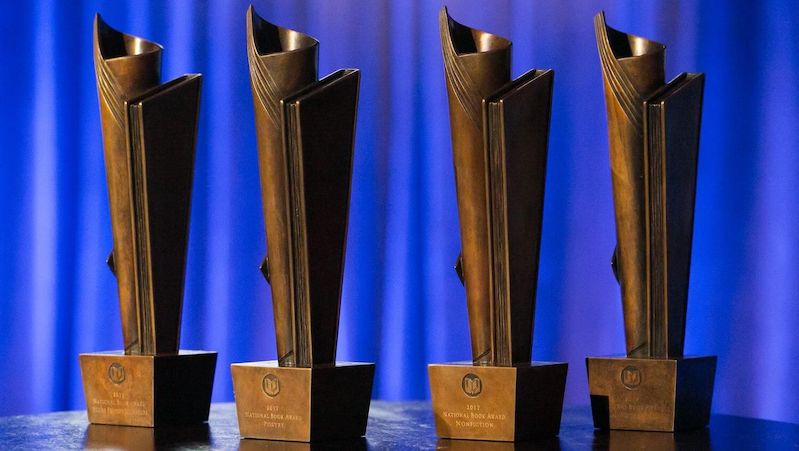
Awards ceremonies are back, baby.
Yes, for the first time since 2019, your favorite writers actually got to dress up and attend a fancy party or two this year.
From the Pulitzer to the Booker, the Nebula to the Edgar, here are the winners of the biggest book prizes of 2022.
Congratulations to all!
*
Pulitzer Prize for Fiction
Awarded for distinguished fiction published in book form during the year by an American author, preferably dealing with American life.
Prize money: $15,000
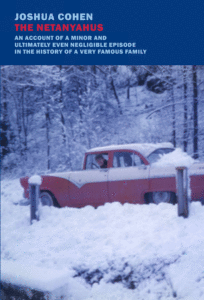
The Netanyahus: An Account of a Minor and Ultimately Even Negligible Episode in the History of a Very Famous Family by Joshua Cohen
(New York Review of Books)
“Cohen has performed a literary miracle of sorts, transforming the shadowy, dour figure of Benzion Netanyahu into the protagonist of an uproariously funny book. In its skewering of the small-mindedness of academic culture, The Netanyahus conjures up the hilarity of David Lodge, and in its piercing gaze and over-the-top, transgressive moves, it evokes the late Philip Roth, who ripped open the soul of the American Jewish parvenu—and that figure’s grinding quest for respectability—like no one else … It is striking how much Cohen gets right about Netanyahu’s scholarship, the historiographical traditions against which he pushed, and the milieux in which he was formed, particularly the distinctive academic culture of the Hebrew University in Jerusalem … Cohen’s narrator captures something essential about the actual Netanyahu … Cohen lays out the twists and consequences of Netanyahu’s argument with exceptional acuity. But he is equally exceptional in tacking back to the comic.”
–David N. Myers (The Los Angeles Review of Books)
Finalists:
Francisco Goldman, Monkey Boy (Grove)
Gayl Jones, Palmares (Beacon)
National Book Award
Recognizes an outstanding work of literary fiction by a United States citizen.
Prize money: $10,000
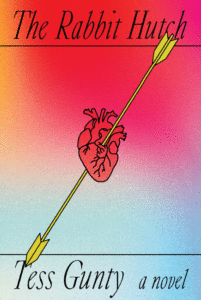
The Rabbit Hutch by Tess Gunty
(Knopf)
“The aspect of unreality—albeit carefully constructed unreality—is central to Ms. Gunty’s presentation of American malaise, which occupies an unstable realm between portraiture and allegory. It is never altogether clear whether her characters are in the grip of some transformative religious awakening or simply suffering from untreated mental illness. The ambiguity is the source of this novel’s remarkable nervous energy. A feeling of genuine crisis—unrooted but ferociously tangible—propels the narrative through its many twists to the catharsis of its bizarre ending … The tension is not uniformly unflagging. An extended middle section recounting Blandine’s doomed love affair with her high-school music teacher is out of proportion in both length and tone, seeming to belong to a more realistic coming-of-age debut. But this does little to offset the unnerving vision and conviction of the most promising first novel I’ve read this year.”
–Sam Sacks (The Wall Street Journal)
Finalists:
Gayl Jones, The Birdcatcher (Beacon)
Jamil Jan Kochai, The Haunting of Hajji Hotak and Other Stories (Viking)
Sarah Thankam Mathews, All This Could Be Different (Viking)
Alejandro Varela, The Town of Babylon (Astra House)
Booker Prize
Awarded for the best original novel written in the English language and published in the UK.
Prize money: £50,000
The Seven Moons of Maali Almeida by Shehan Karunatilaka
(W. W. Norton & Company)
“By striking contrast, and even if the title promises book-club exotica, The Seven Moons of Maali Almeida is preternaturally irreverent about the manifold brutalities in Sri Lanka during its 26-year civil war … Karunatilaka’s novel breaks with conventional modes of storytelling to reveal humanness in a strange, sprawling, tragic situation … Karunatilaka’s book is supremely confident in its literary heterodoxy, and likewise in offering idiosyncratic particularities of ordinary Sri Lankan life well beyond the serious matters of politics, history, religion and mythology … But readers everywhere will find in such demanding specificity what we all seek from great books: the exciting if overwhelming fullness of an otherwise unknown world told on its own terms, and that frisson of unexpected identification and understanding that comes from working to stay in it.”
–Randy Boyagoda (The New York Times Book Review)
Finalists:
NoViolet Bulawayo, Glory (Viking)
Percival Everett, The Trees (Graywolf)
Alan Garner, Treacle Walker (HarperCollins)
Claire Keegan, Small Things Like These (Grove)
Elizabeth Strout, Oh William! (Random House)
International Booker Prize
Awarded for a single book in English translation published in the UK.
Prize money: £50,000, divided equally between the author and the translator
Tomb of Sand by Geetanjali Shree, tr. from Hindi by Daisy Rockwell
(HarperVia)
“There is no one quite like Ma in contemporary literature, which is perhaps one reason why Shree, along with her translator, Daisy Rockwell, won this year’s International Booker prize … Indeed, in its boldness and experimentation—and in its likelihood of influencing a new generation of authors—this breakthrough novel recalls Shree’s fellow Indian-born Booker laureates, Arundhati Roy in The God of Small Things (1997) and Salman Rushdie in Midnight’s Children (1981) … Geetanjali Shree’s novel—which thoroughly deserves its Booker triumph—also seeks to ask who India belongs to.”
–Sonia Faleiro (Times Literary Supplement)
Finalists:
Cursed Bunny by Bora Chung, tr. from Korean by Anton Hur (Algonquin)
A New Name: Septology VI-VII by Jon Fosse, tr. from Norwegian by Damion Searls (Transit)
Heaven by Mieko Kawakami, tr. from Japanese by Sam Bett and David Boyd (Europa Editions)
Elena Knows by Claudia Piñeiro, tr. from Spanish by Frances Riddle (Charco Press)
The Books of Jacob by Olga Tokarczuk, tr. from Polish by Jennifer Croft (Knopf)
National Book Critics Circle Award
Given annually to honor outstanding writing and to foster a national conversation about reading, criticism, and literature. Judged by the volunteer directors of the NBCC who are 24 members serving rotating three-year terms, with eight elected annually by the voting members, namely “professional book review editors and book reviewers.”
The Love Songs of W. E. B. Du Bois by Honoree Fanonne Jeffers
(Harper)
“[A] sweeping, masterly debut novel … Jeffers has deftly crafted a tale of a family whose heritage includes free Blacks, enslaved peoples and Scottish and other white colonialists … Jeffers is an award-winning poet, and she is never doing just one thing with her text … Class and colorism are constant tensions in the novel, and Jeffers expertly renders a world of elite African Americans … The Love Songs of W.E.B. Du Bois is quite simply the best book that I have read in a very, very long time. I will avoid the cliché of calling it ‘a great American novel.’ Maybe the truest thing I could say is that this is an epic tale of adventure that brings to mind characters you never forget … The sign of a great novel is that the author creates a world and when she moves her hands away, the world is still in motion. The idea being that, in the very best novels, every important detail is so lovingly attended to that the novelist’s intention is as invisible and powerful as gravity. The Love Songs of W.E.B. Du Bois is such a world.”
–Veronica Chambers (The New York Times Book Review)
Finalists:
Colson Whitehead, Harlem Shuffle (Doubleday)
Joshua Cohen, The Netanyahus (New York Review of Books)
Rachel Cusk, Second Place (Farrar, Straus and Giroux)
Sarah Hall, Burntcoat(Custom House)
Kirkus Prize
Chosen from books reviewed by Kirkus Reviews that earned the Kirkus Star.
Prize money: $50,000
Trust by Hernan Diaz
(Riverhead)
[An] enthralling tour de force … Each story talks to the others, and the conversation is both combative and revelatory … As an American epic, Trust gives The Great Gatsby a run for its money … Diaz’s debut, In the Distance, was a finalist for the Pulitzer Prize and the PEN/Faulkner Award. Trust fulfills that book’s promise, and then some … Wordplay is Trust’s currency … In Diaz’s accomplished hands we circle ever closer to the black hole at the core of Trust … Trust is a glorious novel about empires and erasures, husbands and wives, staggering fortunes and unspeakable misery … He spins a larger parable, then, plumbing sex and power, causation and complicity. Mostly, though, Trust is a literary page-turner, with a wealth of puns and elegant prose, fun as hell to read.”
–Hamilton Cain (Oprah Daily)
Finalists:
Michelle de Kretser, Scary Monsters (Catapult)
Arinze Ifeakandu, God’s Children Are Little Broken Things(Public Space Books)
Susan Straight, Mecca (Farrar, Straus and Giroux)
Yoko Tawada, Scattered All Over the Earth(New Directions)
Olga Tokarczuk, The Books of Jacob(Riverhead)
Women’s Prize for Fiction
Awarded to a female author of any nationality for the best original full-length novel written in English and published in the United Kingdom.
The Book of Form and Emptiness by Ruth Ozeki
(Viking)
“… [an] ambitious and ingenious novel that presents a stinging exploration of grief, a reflection on our relationship to objects, a potent testament to the importance of reading, writing, and books … The most endearing aspect of Ozeki’s novel is its unabashed celebration of words, writing, and reading. A library is one of the novel’s most enchanted settings, at once a refuge from the cacophony of objects that overwhelms Benny at home and in school and a magical portal to a world of self-discovery and unexpected connections … The Book of Form and Emptiness is charming and warm, dynamic and filled with love, but over-full and a bit undisciplined. It meanders and digresses … But its heart, its ardent, beating heart, is huge. Ozeki’s playfulness and zaniness, her compassion and boundless curiosity, prevent the novel from ever feeling stiff or pretentious. Clever without being arch, metafictional without being arcane, dark without being nihilistic, The Book of Form and Emptiness is an exuberant delight.”
–Pricilla Gilman (The Boston Globe)
Finalists:
Lisa Allen-Agostini, The Bread the Devil Knead (Myriad Editions)
Louise Erdrich, The Sentence (Harper)
Meg Mason, Sorrow and Bliss (Harper Perennial)
Elif Shafak, The Island of Missing Trees (Bloomsbury)
Maggie Shipstead, Great Circle (Knopf)
Morowa Yejidé, Creatures of Passage (Akashic)
PEN/Faulkner Award
Awarded to the author of the year’s best work of fiction by a living American citizen.
Prize money: $15,000
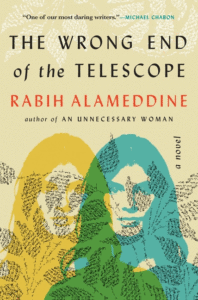
The Wrong End of the Telescope by Rabih Alameddine
(Grove)
“Alameddine’s spectacular novel is rendered through the refreshingly honest lens of Dr. Mina … Dr. Mina is the storyteller the refugees deserve: respected by the Europeans, but steeped in their traditions and history … This is the first novel I’ve read that gives ample room to the ugliness of certain camp volunteers (the bored, the coddled, those battling pangs of uselessness) and the many humiliations some inflict on the displaced. But calling out anyone who gave up a vacation to meet boats seems ungrateful, so the refugees smile for their rescuers’ camera-phones and keep quiet … Alameddine’s irreverent prose evokes the old master storytellers from my own Middle Eastern home, their observations toothy and full of wit, returning always to human absurdity … Again and again, Dr. Mina cracks open the strange, funny and cruel social mores of East and West. She shows us that acceptance and rejection exist across borders and often manifest in surprising ways … Throughout the book, Dr. Mina addresses a blocked and disillusioned Lebanese writer who, having seen too much displacement and horror, finally breaks. I found this mysterious unnamed listener deeply poignant.”
–Dina Nayeri (The New York Times Book Review)
Finalists:
Nawaaz Ahmed, Radiant Fugitives
Carolyn Ferrell, Dear Miss Metropolitan
Imbolo Mbue, How Beautiful We Were
Carolina de Robertis, The President and the Frog
PEN/Robert W. Bingham Prize for Debut Fiction
Awarded to an exceptionally talented fiction writer whose debut work represents distinguished literary achievement and suggests great promise.
Prize money: $25,000
Skinship by Yoon Choi
(Knopf)
“The impossibility of fully knowing someone else, or indeed oneself (the inevitable lacunae!), is an eternal theme of fiction, framed in infinite ways. The immigrant experience, in which multicultural characters necessarily navigate these gaps, is one such frame, and Yoon Choi’s beautiful debut story collection Skinship (Knopf, $26) uses it to bring a rich and engaging new voice to contemporary American letters. With refreshing amplitude, patience, and (dare I say) wisdom, Choi’s stories explore the complexities of her characters’ diverse experiences … In each story, Choi evokes a world entire, an endeavor that extends beyond content into form.”
–Claire Messud (Harper’s)
Finalists:
Carribean Fragoza, Eat the Mouth That Feeds You (City Lights Books)
Dantiel W. Moniz, Milk Blood Heat (Grove Press)
Clare Sestanovich, Objects of Desire: Stories (Knopf)
Chris Stuck, Give My Love to the Savages: Stories (Amistad Press)
Andrew Carnegie Medal for Excellence in Fiction
Awards established in 2012 to recognize the best fiction and nonfiction books for adult readers published in the U.S. in the previous year. Administered by the American Library Association.
Prize money: $5,000 (winner), $1,500 (finalists)
The Thousand Crimes of Ming Tsu by Tom Lin
(Little Brown and Company)
“… addictively gruesome … manages to enhance a wild, wild western with Odyssean devotion, magic realism and historical racism, to create quite the unlikely love story gone awry … Ming’s story of denial becomes Lin’s ingenious assertion of his own Chinese American heritage, his fiction a literal projection of the Chinese American experience onto the page. Lin cleverly reclaims the language as he marks each of the story’s three parts with untranslated Chinese characters … With dexterous agility, Lin showcases Ming’s multi-faceted identity as a native-born American, a builder of transcontinental railroads, a rebel against racist laws, a killer of injustice–and maybe even a hero who might finally get the girl.”
–Terry Hong (Shelf-Awareness)
Finalists:
Kirsten Valdez Quade, The Five Wounds (W. W. Norton & Company)
Lauren Groff, Matrix (Riverhead)
International DUBLIN Literary Award
An international literary award presented each year for a novel written in English or translated into English.
Prize money: €100,000
The Art of Losing by Alice Zeniter
(Farrar, Straus and Giroux)
“Zeniter has used fiction to demystify the war, its evolution and its fallout through an enthralling saga of three generations of a family from Algeria’s mountainous Kabylia region who left the country in 1962 and moved to France … Ms. Zeniter’s extraordinary achievement is to transform a complicated conflict into a compelling family chronicle, rich in visual detail and lustrous in language. Her storytelling, splendidly translated by Frank Wynne, carries the reader through different generations, cities, cultures, and mindsets without breaking its spell … Ms. Zeniter shows fiction’s power as a hedge against loss of the past: the art of regaining.”
–Liesl Schillinger (The Wall Street Journal)
Finalists:
Catherine Chidgey, Remote Sympathy (Europa Editions)
David Diop, At Night All Blood Is Black (Farrar, Straus and Giroux)
Akwaeke Emezi, The Death of Vivek Oji (Riverhead)
Danielle McLaughlin, The Art of Falling (Random House)
Leanne Betasamosake Simpson, Noopiming: The Cure for White Ladies (University of Minnesota Press)
Center for Fiction First Novel Prize
An annual award presented by The Center for Fiction, a non-profit organization in New York City, for the best debut novel.
Prize money: $10,000
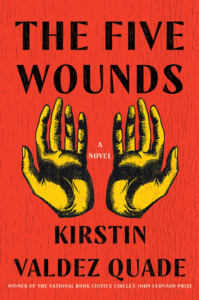
The Five Wounds by Kirsten Valdez Quade
(W. W. Norton & Company)
“In three parts that unfold over the course of a year in the aptly named New Mexico town of Las Penas, The Five Wounds is a knife-sharp study of what happens to a family when accountability to other people goes out the window. Quade’s characters are experts at pushing love away, especially when intimate connection is most necessary … As each member of the Padilla family battles their personal demons, hope shimmers like a mirage over everyday life, a sweet what-if that Quade expertly suspends above the text … it is a treat to see the author’s exceptional command of pacing on display in a novel. Proof that what you say is just as important as how you say it, her precise lines are wanting in neither substance nor style, and her darkly hilarious, tender, gorgeous use of language is one of the crowning pleasures of the novel … an irreverent 21st-century meditation on the restorative powers of empathy.”
–Elena Britos (BookPage)
Finalists:
Priyanka Champaneri, The City of Good Death (Restless Books)
Linda Rui Feng, Swimming Back to Trout River (Simon & Schuster)
Honorée Fanonne Jeffers, The Love Songs of W.E.B. Du Bois (Harper)
Violet Kupersmith, Build Your House Around My Body (Random House)
Patricia Lockwood, No One Is Talking About This (Riverhead)
Jackie Polzin, Brood (Doubleday)
Los Angeles Times Book Prize
Recognizes outstanding literary works as well as champions new writers.
Prize money: $1,000
(Art Seidenbaum Award for First Fiction)
Brood by Jackie Polzin
(Doubleday)
“Shortly after I started reading Brood, the debut novel from St. Paul writer Jackie Polzin, I dashed off a note to a poet friend who used to keep a flock of Rhode Island Reds in her backyard. You will love this book, I told her, the voice is wry and rare and old-fashioned in a good way, reminds me of E.B. White’s essays about his farm. And so funny! … the sprightliness of the voice had me so snowed that it took a while to realize that Brood is actually a story of unremitting loss … Has anyone ever described chickens better than Jackie Polzin? It seems unlikely … This little book was acquired by Doubleday in a two-day, nine-house bidding war, which is saying a lot for a skinny debut novel about raising chickens. But as Polzin points out, ‘A chicken’s life is full of magic. Lo and behold.'”
–Marion Winik (The Star Tribune)
Finalists:
Natasha Brown, Assembly (Little Brown and Company)
Thomas Grattan, The Recent East (MCD)
Jocelyn Nicole Johnson, My Monticello (Henry Holt)
Benjamín Labatut, When We Cease to Understand the World (New York Review of Books)
(Fiction)
In the Company of Men by Véronique Tadjo
(Other Press)
“I was captivated by the book’s multiple points of view, though I may have approached the work more like a collection of stories than a novel. Each chapter presented a different account of the Ebola outbreak, so the chapters felt more like varying personal stories, occurring simultaneously in a time of ceaseless crisis. Formally, I found the mythos of the trees centered and grounded the true-to-life narrative work in and beyond pure fiction. Indeed, the mythical turn creates a stake in poetics … The essayistic voice of each account is quite poetic … the sentence-level overturning of words all in all shows a commitment to language and interest in repetition; the recurring sentence patterns mimic how thoughts overturn in the mind and shift to progress a beating heart forward … Tadjo’s book…weaves poetry and music into the everyday experiences of healthcare workers, so its soul is rich.”
–Kara Laurene Pernicano (Full Stop)
Finalists:
Mariana Enriquez, The Dangers of Smoking In Bed (Hogarth)
Saïd Sayrafiezadeh, American Estrangement (W. W. Norton)
Claire Vaye Watkins, I Love You But I’ve Chosen Darkness (Riverhead)
Joy Williams, Harrow (Knopf)
Edgar Award
Presented by the Mystery Writers of America, honoring the best in crime and mystery fiction.
(Best Novel)
Five Decembers by James Kestrel
(Hard Case Crime)
“Some of my favorite crime novels juxtapose individual murders against the backdrop of wartime mass carnage. This is tough to pull off; it takes a skilled writer to keep the horror of such crimes vivid and stark when they’re surrounded by so much other death. In Five Decembers, James Kestrel, a pseudonym for the horror and suspense novelist Jonathan Moore, does this very, very well … War, imprisonment, torture, romance, foreign language and culture are all explored with genuine feeling. The novel has an almost operatic symmetry, and Kestrel turns a beautiful phrase, too.”
–Sarah Weinman (The New York Times Book Review)
Finalists:
Rhys Bowen, The Venice Sketchbook (Lake Union)
S.A. Cosby, Razorblade Tears (Flatiron)
Will Leitch, How Lucky (Harper)
Kat Rosenfield, No One Will Miss Her (William Morrow)
(Best First Novel)
Deer Season by Erin Flanagan
(University of Nebraska Press)
“Flanagan balances the mystery and its surprising resolution with her emotionally rich character explorations. This is a standout novel of small-town life, powered by the characters’ consequential determination to protect their loved ones at any cost.”
Finalists:
Vera Kurian, Never Saw Me Coming (Park Row)
Fabian Nicieza, Suburban Dicks (G.P. Putnam’s Sons)
JoAnn Tompkins, What Comes After (Riverhead)
Caitlin Wahrer, The Damage (Pamela Dorman Books)
Nebula Award
Given each year by the Science Fiction and Fantasy Writers of America for the best science fiction or fantasy novel.
A Master of Djinn by P. Djèlí Clark
(Tordotcom)
“Clark deftly explores colonialism and the history of Cairo with an immersive setting that acts as another character in this delightful combination of mystery, fantasy, and romance. Give this to alternate history enthusiasts and mystery readers who enjoy a dose of the magical. Fans of S. A. Chakraborty, Martha Wells, and Zen Cho should be particularly pleased.”
–Anna Mickelsen (Booklist)
Finalists:
C. L. Clark, The Unbroken (Orbit US)
S.B. Divya, Machinehood (Gallery / Saga)
Arkady Martine, A Desolation called Peace (Tor)
Jason Sanford, Plague Birds (Apex)
Hugo Award
Awarded for the best science fiction or fantasy story of 40,000 words or more published in English or translated in the prior calendar year.
A Desolation Called Peace by Arkady Martine
(Tor)
“… themes have evolved in complexity, diving deeper into an intrigue about the very nature of life and death. The central cast is as appealing as ever, and the cats..are a delightful addition … Martine’s debut showcased her consummate skill and perfect blend of narrative, humor and world-building; her second effort highlights her thematic ambition, and her abilities as a writer are more than equal to the task. Desolation is the kind of book that crouches in your mind, waiting for a quiet moment. It is hard to read slowly, but demands to be savored, lest you miss some of the cleverest and most elegant foreshadowing in modern science fiction … carries its own distinctive melody … Arkady Martine’s first book was a deserving Hugo winner. Her second might eclipse it.”
–Noah Fram (BookPage)
Finalists:
Becky Chambers, The Galaxy, and the Ground Within (Harper Voyager)
Ryka Aoki, Light From Uncommon Stars (Tor Books)
P. Djèlí Clark, A Master of Djinn (Tordotcom)
Andy Weir, Project Hail Mary (Ballantine)
Shelley Parker-Chan, She Who Became the Sun (Tor Books)
Bram Stoker Award
Presented by the Horror Writers Association for “superior achievement” in horror writing for novels.
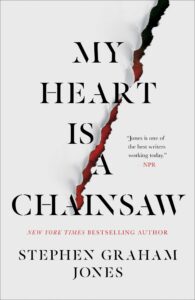
My Heart is a Chainsaw by Stephen Graham Jones
(Gallery / Saga)
“Jones’s My Heart Is a Chainsaw is such an accomplishment; it makes me want to watch all the horror. This novel is a paean to slasher films, a devotional about an acolyte written by an obsessive. And it’s a lot of fun … Jade’s awkwardness and insecurities, her intractable obstinacy, her refusal to behave in a socially acceptable manner, all make her a believable nuisance to the adults in her life…She’s respectful and patient, with an irrepressible sense of humor to balance our her sense of horror. We’re so much on her side we find ourselves hoping for the worst … When things get going, they really go gonzo, and we’re scrabbling to hang on by our fingernails throughout the climax. Everything promised in the first act is gleefully delivered in the third with comedy, pathos and a machete clutched in the hands of an unforgettable character.”
–Ellen Morton (The Washington Post)
Finalists:
V. Castro, The Queen of the Cicadas (Flame Tree Press)
Grady Hendrix, The Final Girl Support Group (Berkley)
Cynthia Pelayo, Children of Chicago (Agora Books)
Chuck Wendig, The Book of Accidents (Del Rey)
‘Tis the season for schadenfreude. Yes, for the sixth year running, we’ve emerged from the bowels of the book review mines trailing behind us an oozing sack of pans—each one riper and more wince-inducing that the last.
Among the books being gored and devoured by feral hogs this year: Jared Kushner’s soulless work of sycophancy, John Boyne’s shameless sequel to The Boy in the Striped Pajamas, and Hanya Yanighara’s “anti-accomplishment” doorstopper.
So here they are, in their fabulously festering fulsomeness: the most scathing book reviews of 2022.
*
“It’s a title that, in its thoroughgoing lack of self-awareness, matches this book’s contents … He betrays little cognizance that he was in demand because, as a landslide of other reporting has demonstrated, he was in over his head, unable to curb his avarice, a cocky young real estate heir who happened to unwrap a lot of Big Macs beside his father-in-law … Breaking History is an earnest and soulless—Kushner looks like a mannequin, and he writes like one—and peculiarly selective appraisal of Donald J. Trump’s term in office. Kushner almost entirely ignores the chaos, the alienation of allies, the breaking of laws and norms, the flirtations with dictators, the comprehensive loss of America’s moral leadership … This book is like a tour of a once majestic 18th-century wooden house, now burned to its foundations, that focuses solely on, and rejoices in, what’s left amid the ashes … Reading this book reminded me of watching a cat lick a dog’s eye goo … The tone is college admissions essay … Kushner, poignantly, repeatedly beats his own drum … A therapist might call these cries for help … The bulk of Breaking History—at nearly 500 pages, it’s a slog—goes deeply into the weeds … What a queasy-making book to have in your hands.”
–Dwight Garner on Jared Kushner’s Breaking History: A White House Memoir (The New York Times)
“The Philosophy of Modern Song is a mouthful, a phrase that puts on airs. It asserts that the book is an important work, a tome that merits a place on your loftiest library shelf, up in the thin air where you keep the leather-bound, gilt-edged stuff … But the title is also a wisecrack, too puffed up and self-important to be taken at face value … As a work of prose, The Philosophy of Modern Song is relentless. It rip-snorts along, charging from song to song, idea to idea. Dylan can write what journalists call a great lede: a first sentence that detonates like a hand grenade … What does all this add up to? Not quite a philosophy of modern song, or at least not a coherent one. But coherence isn’t what you want from Bob Dylan … You have to plow through 46 chapters before encountering a song by a female artist … Yet women loom large in his consciousness and are omnipresent in his pages—appearing in such monstrous form, evoked in language so marinated in misogyny, that, reading The Philosophy of Modern Song, I began to feel like a therapist, sneaking glances at my watch while the crackpot on the couch blurts one creepy fantasy after another … It’s a bummer, to put it mildly, to find a Nobel laureate…mixing metaphors and spouting nonsense like an elderly uncle who bulk-emails links to Fox News segments.”
–Jody Rosen on Bob Dylan’s The Philosophy of Modern Song (The Los Angeles Times)
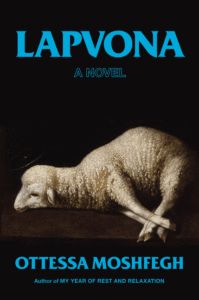
“Moshfegh’s own sacraments involve a different orifice, so you will forgive her if her search has led her up her own ass … At first glance, Lapvona is the most disgusting thing Moshfegh has ever written…Yet Moshfegh’s trusty razor can feel oddly blunted in Lapvona. In part, her characteristic incisiveness is dulled by her decision to forgo the first person, in favor of more than a dozen centers of consciousness. This diminishment is also a curious effect of Lapvona itself … Lapvona is the clearest indication yet that the desired effect of Moshfegh’s fiction is not shock but sympathy. Like Hamlet, she must be cruel in order to be kind. Her protagonists are gross and abrasive because they have already begun to molt; peel back their blistering misanthropy and you will find lonely, sensitive people who are in this world but not of it, desperate to transform, ascend, escape … This is the problem with writing to wake people up: Your ideal reader is inevitably asleep. Even if such readers exist, there is no reason to write books for them—not because novels are for the elite but because the first assumption of every novel must be that the reader will infinitely exceed it. Fear of the reader, not of God, is the beginning of literature. Deep down, Moshfegh knows this….Yet the novelist continues to write as if her readers are fundamentally beneath her; as if they, unlike her, have never stopped to consider that the world may be bullshit; as if they must be steered, tricked, or cajoled into knowledge by those whom the universe has seen fit to appoint as their shepherds … It’s a shame. Moshfegh dirt is good dirt. But the author of Lapvona is not an iconoclast; she is a nun. Behind the carefully cultivated persona of arrogant genius, past the disgusting pleasures of her fiction and bland heresies of her politics, wedged just above her not inconsiderable talent, there sits a small, hardened lump of piety. She may truly be a great American novelist one day, if only she learns to be less important. Until then, Moshfegh remains a servant of the highest god there is: herself.”
–Andrea Long Chu on Ottessa Moshfegh’s Lapvona (Vulture)
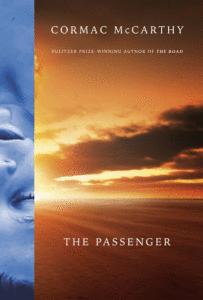
“Reading it is like immersive theatre: one of those elaborate warehouse productions where you stumble about from tableau to tableau, trying to piece the story together … The novel is long on atmosphere and short on sense. There are slick, movie-style conversations with a private investigator, a Vietnam vet, and a trans woman; long lunches with a garrulous criminal friend; flashbacks to Alicia’s hallucinations; the obligatory bit of survivalism (would it even be a McCarthy novel without an episode involving tinned foods and roadkill?) … James Joyce is invoked. An oblique reminder that great literature requires hard work? But McCarthy’s difficulty is perverse. The decision to open The Passenger with an impenetrable conversation between Alicia and her hallucinations; the quantum mechanics; the pinball structure; the confusing dialogue—all this just makes the novel hard to read. Nothing meaningful is gained. It’s a shame because at times these books are more interesting than McCarthy’s key works … We think these books are unflinching. Really, they are kitsch: McCarthy’s is an art of exaggeration. A con trick is being practised … That’s how you garner comparisons to Hemingway and Faulkner—when, in fact, you’re a mediocre hybrid of both.”
–Claire Lowdon on Cormac McCarthy’s The Passenger (The Sunday Times)
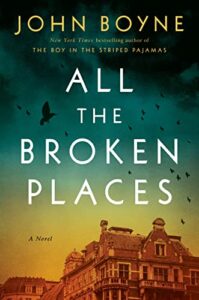
“With his latest treacly tome All the Broken Places—complete with title so maudlin it preempts all mockery—Boyne has gifted us with a Holocaust novel so self-indulgent, so grossly stereotyped, so shameless and insipid that one is almost astonished that he has dared … This is not literature. As a grown-up sequel to children’s trash, All the Broken Places serves two roles. First, to demonstrate that Boyne definitely did not think that the Germans were innocent, definitely knew they were ‘complicit’ and ‘guilty’ and that history is ‘complicated,’ etc, thanks very much. Second, to serve as a sort of fan fiction for those peculiar adults who long for the comfort of a childhood favorite. As to this first goal, at least, it is a consummate failure, a wildly simplified narrative that misrepresents the extent of Nazi ideology. As in The Boy in the Striped Pajamas, Boyne underestimates the family’s awareness of the Holocaust, lending his German characters an exaggerated naivety, or implausible deniability … Boyne flaunts a teenager’s understanding of the causes and consequences of the Second World War … As with so much Holocaust fiction All the Broken Places utterly fails in its stated purpose: making the next generation slightly less likely to participate in the next genocide…Boyne’s reduction of Nazi ideology to a fringe belief, expressed in infrequent outbursts—’those filthy Jews’—is all the more absurd now that he’s writing for grown-ups … We don’t need anyone to teach us how to recognize the barefaced devil; the danger is the insidious and gradual creep of violence into the civilised and everyday. This is what the philosopher Theodor Adorno’s dictum—’To write poetry after Auschwitz is barbaric’—warned of: art unable to recognise the break the Holocaust represented with the past, afraid to apprehend the failure of the civilising project. With this childish drivel in which the villains and victims come labelled and sorted, Boyne yet again seems immune to its lessons.”
–Ann Manov on John Boyne’s All the Broken Places (The New Statesman)
“99 years old, but still, still pushing out the kind of platitudes that not only can be used to excuse the most evil people in the history of the species but that are designed to do exactly that…This rhetoric-as-strategy is obvious right from this book’s cast of characters…A reader might first wonder what Konrad Adenauer is doing drawn among these heartless hinds, but eyebrows might raise at de Gaulle and even Sadat as well…A moment’s thought reveals the beady-eyed rationale behind this grouping; it’s not to pull down good men, it’s to raise up genuine fire-eyed black-pelted yellow-fanged monsters…Henry Kissinger might not be able to climb a flight of stairs anymore, but he’s still capable of telling a lie before he’s even finished his Table of Contents…As he’s winding up this ghastly, conscienceless book, Kissinger contentedly admits that his subjects weren’t always popular…Not everyone admired them or ‘subscribed to their policies’…Sometimes, in fact, they faced resistance, and their separate memories still sometimes face such resistance…Almost like there might be debate about their legacies, or something…Leadership might very well be Kissinger’s most mandarin-hateful book, even surpassing 2014’s truly odious World Power…It’s his 19th book…Here’s hoping it’s his last.”
–Steve Donoghue on Henry Kissinger’s Leadership: Six Studies in World Strategy (Open Letters Review)
“To Paradise is so unusually terrible that it is a sort of anti-accomplishment, the rare book that manages to combine the fey simplicity of a children’s tale with near unreadable feats of convolution. It is too juvenile to attract serious adult readers and too obtuse to aspire to popular appeal. If A Little Life dragged and self-dramatized, at least it did so via a welter of readily legible, melodramatic thrills. But soap opera fanatics will fare no better with To Paradise’s contortions than will seasoned belletrists. There is nothing to recommend it to anyone. As I trudged through the novel’s 700 pages, I found myself nostalgic for books plagued only by quaint defects, such as confusing descriptions and characters who behave inconsistently – not that Yanagihara, who has a special gift for garbled metaphors and bizarrely specific yet impenetrable imagery, spares us such infelicities … it is hard to summon the will to enumerate To Paradise’s thematic or even stylistic shortcomings, for its basic construction is so irretrievably botched as to eclipse the rest of its defects. The fundamental problem is simple and devastating: the book does not make any sense … Aside from its sheer incoherence, its most notable feature is only its punishing length. On and on it goes, sprouting new subplots, amassing new contrivances. Anyone must have a brain of stone to finish it without shedding tears of relief.”
–Becca Rothfeld on Hanya Yanagihara’s To Paradise (Times Literary Supplement)
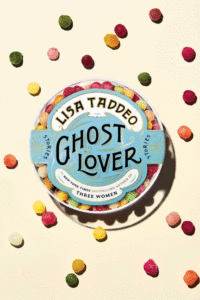
“Viral success has emboldened [Taddeo] to abandon everything patient and methodical in her investigation of women’s darker appetites in favour of the literary equivalent of chasing clicks … Ghost Lover is a nine-course tasting menu that is all spice and no flavour … The main dish is always the same facile serving of female jealousy. In every effortfully flippant tale, self-conscious women compete to be the most desirable female in the room … At least the proper nouns denote actual things. When Taddeo attempts metaphor, we run into more serious trouble … Throughout, Taddeo rams words together in unexpected ways. ‘His voice turned throaty, filled with wetness and trees.’ Trees? … Perhaps Taddeo has read Lolita and feels excited about experimenting with the English language. Only it feels more as if she has done the experimenting in another tongue, Finnish or Swahili, perhaps, then run a series of untranslatable local sayings through Google Translate … In the course of producing this Goop noir, Taddeo has abandoned any interest in women as complex, conflicted humans. Her characters are myopically focused on blow-dries, blow jobs and brow tints … Inspires depression.”
–Johanna Thomas-Corr on Lisa Taddeo’s Ghost Lover (The Sunday Times)
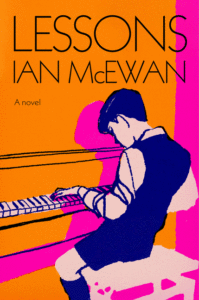
“Everything in Lessons, whose story concludes within a year and a half of its publication date, gives the impression of having been written in extreme haste. Its prose, for example, is pocked with first-order clichés, second-order clichés, dull metaphors, mixed metaphors, limp similes, oxymorons, pleonasms, catachresis, jejune diction, trivializing double entendres, pomposities, flagrant abuse of self-reflexive questions, and barely-concealed cribbings from more talented stylists like Nabokov … Within the first fifty or so pages, Roland experiences no fewer than three portentous epiphanies, none of which turn out to have any bearing on the subsequent four hundred, as though they were narrative coupons McEwan cut out but forgot to cash in … McEwan’s novel is not so much an epic as it is three novellas in a trench coat … If this all sounds pat, it has less to do with the necessary evil that is plot summary in book reviewing, than to the didacticism with which McEwan imparts these and other praecepta in the novel itself. Yet perhaps worse than the way the book comes pre-interpreted for the reader is the way it comes pre-criticized … The trench coat is History. Draped loosely from the backs of these three narratives are hundreds of named political and cultural events, persons, and phenomena, starting with Dunkirk and ending with the storming of the US Capitol on January 6, 2021, which range from the genuinely consequential to the merely newsworthy to the unmentionably trivial.”
–Ryan Ruby on Ian McEwan’s Lessons (The New Left Review)
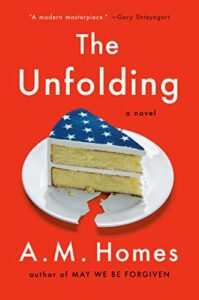
“There is a good, though not excellent, short story hidden somewhere in the four hundred pages of A. M. Homes’s The Unfolding … But on balance, The Unfolding is depressingly shallow, arriving too late and with too little intelligence, humor, wit, or insight to be useful or entertaining … The plot is simple … The structure—dilating and contracting across a narrow band of time—works best in subtly paralleling personal and familial breakdowns with national upheaval, but at its worst, the form makes this novel feel interminable … Homes is dedicated to the idea of these men as so pickled by their own vice and privilege that there’s not an intelligent thought to be found among them. They remain static in their grumbling and their vague schemes, which prevents the irony from deepening or sharpening its critique. What ought to be a central driver of the plot or the evolution of the novel’s themes becomes an inert gimmick … Homes trades away her characters’ convictions and depth for attempted comedic effect. No contrast. No pathos. These men are hollow, which makes the story itself hollow … Homes for some reason describes any surface or object that comes into contact with her characters as though she were writing about the contours of the human soul. Do we need to know what the taxi seats feel like? … I was bored by this book. By its lazy stances, its lax politics, and its rote writing.”
–Brandon Taylor on A. M. Holmes’ The Unfolding (4Columns)
“The institutional tone in 21st-century humor is unequipped to deal with anything that matters. In Happy-Go-Lucky, his new collection of essays about the pandemic, aging, and the slow but inevitable death of his father, David Sedaris simultaneously asserts himself as the undisputed past master of this tone and captures its fundamental weakness, applying the style he has developed for the last 30 years to a subject matter for which it is almost eerily unsuited … It is ironic, then, that relatability also turns out to be the absolute bête fucking noire of this collection, cropping up again and again to recast Sedaris not as the antsy everyman we grew up with but rather as some kind of moneyed Aspergers case … For a different author, that would be comedy gold—or at least a bracing opportunity to try something new, to go somewhere more vulnerable and potentially less funny, but also maybe incisive and bittersweet in a way that made the late-life output of funny writers like Twain and Joan Didion so paradoxically invigorating. But Sedaris can’t seem to do it. Either he doesn’t have enough tools in the box or he just refuses to look too closely at any of these understandably difficult subjects, so instead he writes about them in the same tone he used to write about department-store Santas and being bad at French, with disastrously jarring results … Sedaris is like the social director running around the deck of a listing cruise ship, frantically playing for laughs and doing jazz hands while the reader wonders whether he doesn’t know the ship is sinking or just refuses to acknowledge what’s going on … A man with a dozen houses confronts death, the coronavirus pandemic, Black Lives Matter, and broad cultural changes that he cannot fully understand. ‘Ha ha!’ he says. It sounds just like a laugh, just like it always has, except it does not sound true.”
–Dan Brooks on David Sedaris’ Happy-Go-Lucky (Gawker)
“Even if you’re unfamiliar with this tradition of stories about race transformation, you’ll suspect what’s coming … Tone above all distinguishes Hamid from these precursors. Whereas most of these writers bend race transformation toward satire, offering us topsy-turvy and hysterical tales, Hamid is deeply earnest about his conceit. The novel is that wan 21st-century banality, a ‘meditation,’ and it meditates on how losing whiteness is going to make white people feel. Mostly sad, as it turns out … The sex improves; the prose does not … The novel evinces the worst of Hamid’s style … As in his earlier novels about social mobility and immigration, romance supplies the plot and casts an aura of ‘love’ over the politico-speculative gimmick … This is the novel’s cure for white despair over the loss of whiteness: Keep calm and carry on … What exactly is being born—or rather, borne? Darkness in The Last White Man is an ordeal. Those who were already dark have little presence and no internal life in the novel … If Hamid’s novel were a self-aware satire of this ideology of whiteness and its violent effects, it would be pitch-perfect. But The Last White Man’s structure affords us no way to know if this is what Hamid intends: It includes no higher judgment, no specific history, no novelistic frame against which to measure the reliability of the narration, no backdrop across which irony can dance … The Last White Man feels like a primer for mourning whiteness, not a critique of it … It’s one thing for a character to be afflicted with blurred vision or the race ‘blindness’ that grants Oona a ‘new kind of sight’; it’s another for the novel to suffer the same confusion of perspective.”
–Namwali Serpell on Mohsin Hamid’s The Last White Man (The Atlantic)
“… surely the nastiest Trump administration memoir yet, and possibly, given Conway’s track record, the most flagrantly dishonest … in 500 pages packed with more score-settling than a Quentin Tarantino movie, Conway gives free rein to her contempt for Jared Kushner, Steve Bannon, Mark Meadows, Brad Parscale, Reince Priebus, Sean Spicer, and countless other unnamed male Trump staffers … let no one call this book meticulously edited … When she can’t confuse a discussion with arguments as tangled as a pailful of eels, Conway simply avoids it … feels most alive when she’s seething at the ‘overrated, underachieving men who had ridiculed and dismissed me for years’ … can be read as the delusional account of a woman blind to the shortcomings of the powerful man who gave her a shot. But it can also be read—will be read, by those who matter—as an advertisement for her own consultancy business. She’s such a skilled prevaricator that I found myself wondering if she really hates all those male GOP consultants so virulently—or is she just taking out the competition? Furthermore, the ease with which she burns her bridges with Kushner while buttering up her one-time client Mike Pence make clear who she thinks her party’s next candidate will be. Only a fool would trust her, but only a bigger fool would write her off.”
–Laura Miller on Kellyanne Conway’s Here’s the Deal: A Memoir (Slate)
“John Irving’s 15th novel is 11 shy of 900 pages long. And boy, did I feel every one of those pages … a baffling amount of weak literary explication and juvenile political opining … The most notably shoehorned element (and there are many, including the ghosts that irritatingly scamper throughout) is the inclusion of excerpts of Adam’s film script—so unnecessary and ill-advised in this already flabby book, it’s difficult not to wonder if this might have been a rejected love-project of Irving’s … The truly discomfiting aspect of this book, though, has to be the hyper-sexualisation of the female characters therein. Early on, a young woman’s loud orgasm is described or referenced, by my count, 16 times. Yes, Irving could argue that this is told from a teenage boy’s perspective, and thus that focusing on all things arousing is only natural. But these leering and, again, endlessly repeated descriptions, read more like the errant mental wanderings of a horny older man than the thoughts of a pubescent boy … There is so much more I could’ve written, but thankfully, unlike Irving, I have a word count to consider.”
–Sweeney Byrne on John Irving’s The Last Chairlift (The Irish Times)
“As an avant-garde firebrand in the 1960s, Handke wrote an ‘anti-play’ titled Offending the Audience, but now his strategy has shifted perilously close to Boring the Audience to Tears. Much like the narrator imagining the character of the fruit thief, I kept trying to envision a subset of readers who genuinely find this stuff delightful. Lacking most of the elements that draw people to fiction—insight, suspense and so on—it falls to either the language or the narrative material itself to make the novel worth the reader’s while. Although both have their moments—a mad speech in the final pages, an interlude at an inn that takes on the lighting and atmosphere of old European folk tales—the meal served up by this deeply eccentric novelist is spare and saltless, with no wine and no dessert. I suspect it’s the destiny of such an uncompromising writer as Peter Handke to end up writing basically for an audience of one. His most loyal readers, perhaps, adopt an attitude of veneration, hushed and solemn and more or less bored, the way many people attend Mass.”
–Rob Doyle on Peter Handke’s The Fruit Thief (The New York Times Book Review)
*
Hungry for more harsh critiques?
Reacquaint yourself with The Most Scathing Book Reviews of 2017 , 2018, 2019, 2020, and 2021.
Way back in the mid-aughts when I first started writing about books, pitching a print publication was the only reliable way for book critics to get paid, and third-person point of view was all the vogue. Much has changed in the years since: Newspaper and magazine book sections have shuttered, many digital outlets offer compensation when they can, and first-person criticism has become much more pervasive.
I don’t celebrate all these changes, but I’m certain of one thing in particular: I love book reviews and critical essays written in the first-person. Done well, they are generous invitations into the lives of critics—and into their memory palaces. With that in mind, most of my picks for the best book reviews of 2022 were written in the first person this year.
*
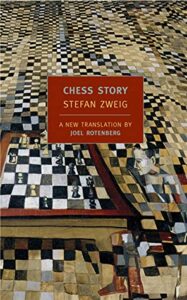
Adam Dalva on Stefan Zweig’s Chess Story, translated by Joel Rotenberg (Los Angeles Review of Books)
Dalva’s review of Chess Story is a great example of the power of a first-person point of view—he doesn’t just examine the book, he narrates his own journey to understand it.
“In my own quest to understand Chess Story, I gradually realized that I would have to learn the game it centers on. And that has led me into a second obsession, much more problematic: I have fallen passionately in love with online bullet chess.”
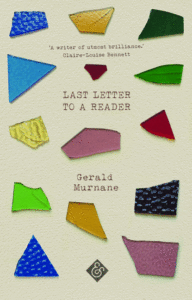
Merve Emre on Gerald Murnane’s Last Letter to a Reader (The New Yorker)
Merve Emre’s analysis of Gerald Murnane’s final book is a beautiful piece of writing. I love how she opens on a note of suspense, pulling you into a story you can’t stop reading.
“On most evenings this past spring, the man who lives across the street sat at his small desk, turned on the lamp, and began to write as the light faded. The white curtains in his room were seldom drawn. From where I sat, I had a clear view of him, and he, were he to look up from his writing, would have had a clear view of a house across the street, where a woman with dark hair and a faintly olive complexion was seated by a window, watching him write. At the moment he glanced up from his page, the woman supposed him to be contemplating the look, or perhaps the sound, of the sentence he had just written. The sentence was this: ‘Since then I have tried to avoid those rooms that grow steadily more crowded with works to explain away Time.’”
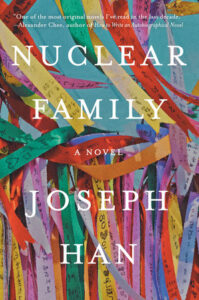
Minyoung Lee on Joseph Han’s Nuclear Family (Chicago Review of Books)
Lee brings her own experience to bear in this insightful review of a novel about Korean Americans in the diaspora. (Disclosure: I founded the Chicago Review of Books in 2016, but stepped back from an editorial role in 2019.)
“In diaspora communities, it’s not uncommon to find cultural practices from the homeland, even after they’ve become unpopular or forgotten there. This is colloquially referred to as ‘the immigrant time capsule effect.’ It can be experienced in many of the ethnic enclaves in the U.S. My first impression of Los Angeles’ Koreatown when I visited in the 2010s, for example, was that it felt very much like Seoul in the 1980s. Grocery stores were even selling canned grape drinks that were popular when I was a child but that I haven’t seen since.”
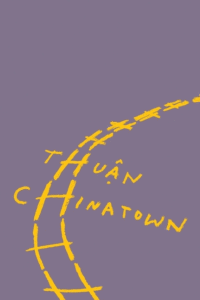
Chelsea Leu on Thuận’s Chinatown, translated by Nguyen An Lý (Astra)
Astra magazine’s “bangers only” editorial policy led to some spectacular reviews, like this Chelsea Leu number that opens with a fascinating linguistics lesson.
“It was in high school Latin that I learned that language could have moods, and that one of those moods was the subjunctive. We use the indicative mood for statements of fact, but the subjunctive (which barely exists in English anymore) expresses possibilities, wishes, hopes and fears: ‘I wouldn’t trust those Greeks bearing gifts if I were you.’ More recently, I’ve learned there exists a whole class of moods called irrealis moods, of which the subjunctive is merely one flavor. André Aciman’s recent essay collection, Homo Irrealis, is entirely dedicated to these moods, celebrating the fact that they express sentiments that fly in the face of settled reality.”
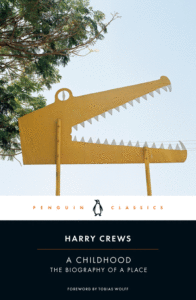
Casey Cep on Harry Crews’ A Childhood: The Biography of a Place (The New Yorker)
Cep is a magician when it comes to capturing a sense of place, as evidenced by her book about Harper Lee, Furious Hours, and this review of a book about another Southern writer, Harry Crews.
“Dehairing a shoat is the sort of thing Crews knew all about, along with cooking possum, cleaning a rooster’s craw, making moonshine, trapping birds, tanning hides, and getting rid of screwworms. Although he lived until 2012, Crews and his books—sixteen novels, two essay collections, and a memoir—recall a bygone era. The best of what he wrote evokes W.P.A. guides or Foxfire books, full of gripping folklore and hardscrabble lives, stories from the back of beyond about a time when the world seemed black and white in all possible senses.”
Victoria Chang and Dean Rader on Roger Reeves’ Best Barbarian (Los Angeles Review of Books)
Last year I professed my love for “reviews in dialogue” between two critics, and Chang and Rader continue to be masters of the form in this conversation about Roger Reeves’ second poetry collection.
“Victoria: Do you have thoughts on the flow of the poems or allusions? I have a feeling you will talk about the biblical references. But I’m most curious to hear what you have to say about the purpose of the allusions and references. Is the speaker agreeing with them, subverting them, both? Is the speaker using them as a way to press against or think against, or toward? I know you will say something smart and insightful.”
“Dean: That is a lot of pressure. I’ll try not to let you down.”
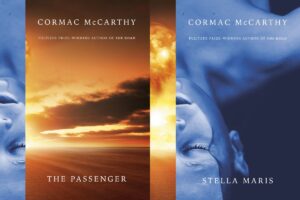
Maggie Doherty on Cormac McCarthy’s The Passenger and Stella Maris (The New Republic)
I didn’t think anyone could persuade me to read another Cormac McCarthy novel after The Road, but Maggie Doherty makes every book sound fascinating by making it part of a bigger, true story.
“Such is the paradox of The Passenger, a novel at once highly attuned to the pleasures of collective life and resistant to the very idea of it. Unlike the violent, stylized books for which McCarthy is best known, this new novel is loose, warm, colloquial. It explores the sustaining, if impermanent, bonds formed among male friends. It’s full of theories and anecdotes, memories and stories, all voiced by some of the liveliest characters McCarthy has ever crafted. The Passenger is McCarthy’s first novel in over 15 years; its coda, Stella Maris, is published in December. Together, the books represent a new, perhaps final direction for McCarthy. The Passenger in particular is McCarthy’s most peopled novel, his most polyphonic—and it’s wonderfully entertaining, in a way that few of his previous books have been. It is also his loneliest novel yet.”
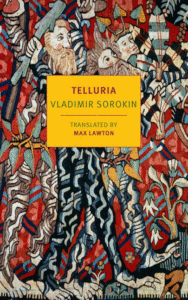
Allison Bulger on Vladimir Sorokin’s Telluria, translated by Max Lawton (Words Without Borders)
I’m always interested in how critics find new ways to start a review, and Bulger’s opening lines here are a particularly sharp hook.
“Of all the jobs esteemed translator Larissa Volokhonsky has rejected, only one text was physically removed from her apartment on the Villa Poirier in Paris.
‘Take it back,’ she said. ‘Rid me of its presence.’
“The cursed title was Blue Lard (1999) by Vladimir Sorokin, known to some as Russia’s De Sade, and Volokhonsky’s revulsion was par for the course. It would be twenty years before another translator, Max Lawton, would provide eight Sorokin works unseen in the West, including Blue Lard, in which a clone of Khrushchev sodomizes a clone of Stalin.”
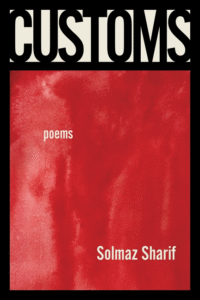
Summer Farah on Solmaz Sharif’s Customs (Cleveland Review of Books)
Farah’s nuanced review of Solmaz Sharif’s new poetry collection further illustrates the potency of a first-person voice.
“Our poets write of our martyrs and resist alongside them; sometimes, I wonder, what life will be like after we are free, and what a truly free Palestine looks like. Last spring, the hashtag “#غرد_كأنها_حرة” circulated on Twitter, a collection of Palestinians imagining life as if our land was free; people imagined themselves moving from Akka to Ramallah with ease, returning to their homes their grandparents left in 1948, and traveling across the Levant without the obstacle of borders. This stanza acknowledges there is more work to be done than just ridding ourselves of the obvious systems that oppress us; decolonization and anti-imperial work are more holistic than we know. Sharif’s work is about attunement to the ways imperialism is ingrained into our lives, our speech, our poetry; this moment is direct in that acknowledgement.”
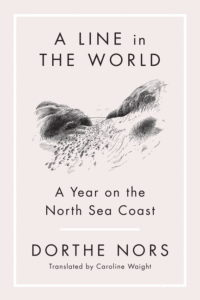
Nicole LeFebvre on Dorte Nors’ A Line in the World (On the Seawall)
LeFebvre opens this review like she’s writing a memoir or a personal essay—an unexpected joy that would be very hard to do in third-person.
“Each morning when I wake up, I hear the gentle crash and lull of waves on a beach. ‘Gather, scatter,’ as Dorthe Nors describes the sound. My eyes open and blink, adjusting to the dark. The sun’s not up yet. I scoot back into my partner’s body, kept asleep by the rhythmic thrum of the white noise machine, which covers the cars idling in the 7-Eleven parking lot, the motorcyclists showing off their scary-high speeds. For a few minutes, I accept the illusion of a calmer, quiet life. ‘Gather, scatter.’ A life by the sea.”
We’ve come to the end of another bountiful literary year, and for all of us review rabbits here at Book Marks, that can mean only one thing: basic math, and lots of it.
Yes, using reviews drawn from more than 150 publications, over the next two weeks we’ll be calculating and revealing the most critically-acclaimed books of 2022, in the categories of (deep breath): Fiction; Nonfiction; Memoir and Biography; Sci-Fi, Fantasy, and Horror; Short Story Collections; Essay Collections; Poetry; Mystery and Crime; Graphic Literature; and Literature in Translation.
Today’s installment: Poetry Collections
*
1. The Hurting Kind by Ada Limón
(Milkweed Editions)
16 Rave • 2 Positive
Read an essay by Ada Limón here
“Limón responds in her poetry to what she identifies as an ecological imperative to re-describe our relationship to ‘nature’ in a manner that isn’t merely instrumental. The moving personal dramas that her poems detail can never be separated from the landscape in which they occur … Her poetry, which can feel so intimate and self-revealing, is almost constantly political at the same time … What I might contribute, at the expense of seeming geeky, are some comments on the technical brilliance of Limón’s work, as it is seldom mentioned elsewhere … Most of the lexicon and sentence patterning throughout this poem— and Limón’s other poems— could easily be spoken in conversation. It’s characteristic of Limón’s style that her language reads as both speech and as heightened ‘non-speech.’ It’s a difficult balancing act … Limón isn’t a naive writer; her poetics are informed and slyly in conversation with a historical body of literature … The poems in all four sections of The Hurting Kind cultivate wisdom in domesticity … There are endless things to say about the articulate, complex emotional resonance of the poems in this book. Still, what Limón says about ‘a life’ is true as well for her book: ‘You can’t sum it up.'”
–Forest Gander (The Brooklyn Rail)
2. Time is a Mother by Ocean Vuong
(Penguin)
15 Rave • 1 Positive • 1 Mixed
Read an essay by Ocean Vuong here
“Time, normally associated with death and erasure, embodied in the image of the Greek god Kronos devouring his young, is transformed by the poet into a mother with endlessly regenerative power … illustrates the poet’s efforts to reconcile inexorable fate with aesthetic transformation, eternal absence with continuous presence … Aesthetically complex yet emotionally accessible, Time is a Mother at once innovates and affirms the existing poetic tradition, bringing to mind John Ashbery’s Paradoxes and Oxymorons. Vuong’s portrait of Hồng is both intimate and iconic … By addressing Hồng in ‘Dear Rose,’ Vuong also reaches out to us who, in reading his work, become his mother, the poem, and his community through space and time.”
–Thúy Đinh (NPR)

3. Customs by Solmaz Sharif
(Graywolf)
13 Rave • 1 Positive
Read a poem from Customs here
“… a dazzling collection … Through her poems, Sharif rebels against gatekeepers, memorializing small and large violations of the spirit and body. She skillfully employs syntax and placement to signify the outsider experience, and how many voices and narratives have been silenced. Her poems often exhibit a wide expanse of white space to frame powerful linguistic fragments, which are complete in their vivid imagery yet leave room for personal interpretation … Sharif uses language, often fragments with extended impact, to unveil the indescribable and to embody emotion that language can’t possibly express, but in such talented hands, somehow does … In some sections, Sharif beautifully creates blizzards of white space with words or couplets, interspersed like small people from a distance or footsteps of those who’ve come before. The reading process forces our electronically trained mind and visual cortexes to slow down and also physically presents the hesitations of searching for words that may not be found, in languages in which one may not be fluent. Sharif’s language is spare and all the more sharp for what remains, for all that she has left out, as the sculptor does with a slab of marble … This is poetry—this is a poet—that marvels us in manners minute and majestic. That will always be current, of its time, of our times.”
–Mandana Chaffa (Ploughshares)
4. The Kissing of Kissing by Hannah Emerson
(Milkweed)
9 Rave • 1 Positive
“Emerson, a non-speaking, autistic writer, communicates a sublime personal cosmology in poems vibrating with an energy that derives, in part, from surprising repetitions … Emerson’s work provokes ecological awareness through musings about animal consciousness, plant life, and the paradox of an individual psyche that might engage in an elemental dissolution into snow, sunlight, or mud … [an] unforgettable collection.”
–Heather Green (The Poetry Foundation)
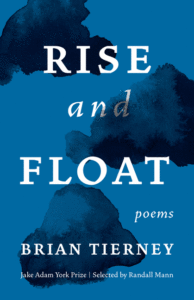
5. Rise and Float by Brian Tierney
(Milkweed Editions)
6 Rave • 2 Positive
Read a poem from Rise and Float here
“You might identify Brian Tierney’s masterful Rise and Float with the subject matter it delicately, woundedly, explores: the many strains of suffering brought together under the insufficient language of ‘mental illness,’ and the far-reaching webs of pain and memory they engender … But the book’s most distinctive feature is the experience of constant motion, as the poems enact a continuous search for religious consolation, which is sometimes called ‘meaning,’ and sometimes ‘metaphysics,’ a search pursued all the more sincerely because it is known to be foreclosed. That motion leaves its signature and its stage direction at every level, from the breaking of syntax across the fall of one line and its healing in the first word of the next … Though the little rifts in language that these poems make visible once may have opened toward consolation, the reader sensitized by this book’s scarred and cynic knowledge will come to feel them as lures for false feeling, requiring the repeated, painful sacrifice of consolation in the name of honesty. This is quite dark. As is the book. But even what doesn’t console may compensate, and if Rise and Float’s search for salvific meaning fails, the language, gorgeous in its precision, remains as its own testament of perseverance … This is a book that rises despite what it knows, celebrates the float of disbelief that poetic language allows, and mourns the precise place on the linoleum where those mirages fail.”
–Noah Warren (The Los Angeles Review of Books)
*
Our System:
RAVE = 5 points • POSITIVE = 3 points • MIXED = 1 point • PAN = -5 points
We’ve come to the end of another bountiful literary year, and for all of us review rabbits here at Book Marks, that can mean only one thing: basic math, and lots of it.
Yes, using reviews drawn from more than 150 publications, over the next two weeks we’ll be calculating and revealing the most critically-acclaimed books of 2022, in the categories of (deep breath): Fiction; Nonfiction; Memoir and Biography; Sci-Fi, Fantasy, and Horror; Short Story Collections; Essay Collections; Poetry; Mystery and Crime; Graphic Literature; and Literature in Translation.
Today’s installment: Essay Collections.
*
1. In the Margins: On the Pleasures of Reading and Writing by Elena Ferrante
(Europa)
12 Rave • 12 Positive • 4 Mixed
“The lucid, well-formed essays that make up In the Margins are written in an equally captivating voice … Although a slim collection, there is more than enough meat here to nourish both the common reader and the Ferrante aficionado … Every essay here is a blend of deep thought, rigorous analysis and graceful prose. We occasionally get the odd glimpse of the author…but mainly the focus is on the nuts and bolts of writing and Ferrante’s practice of her craft. The essays are at their most rewarding when Ferrante discusses the origins of her books, in particular the celebrated Neapolitan Novels, and the multifaceted heroines that power them … These essays might not bring us any closer to finding out who Ferrante really is. Instead, though, they provide valuable insight into how she developed as a writer and how she works her magic.”
–Malcolm Forbes (The Star Tribune)
2. Translating Myself and Others by Jhumpa Lahiri
(Princeton University Press)
8 Rave • 14 Positive • 1 Mixed
“Lahiri mixes detailed explorations of craft with broader reflections on her own artistic life, as well as the ‘essential aesthetic and political mission’ of translation. She is excellent in all three modes—so excellent, in fact, that I, a translator myself, could barely read this book. I kept putting it aside, compelled by Lahiri’s writing to go sit at my desk and translate … One of Lahiri’s great gifts as an essayist is her ability to braid multiple ways of thinking together, often in startling ways … a reminder, no matter your relationship to translation, of how alive language itself can be. In her essays as in her fiction, Lahiri is a writer of great, quiet elegance; her sentences seem simple even when they’re complex. Their beauty and clarity alone would be enough to wake readers up. ‘Look,’ her essays seem to say: Look how much there is for us to wake up to.”
–Lily Meyer (NPR)
3. The Philosophy of Modern Song by Bob Dylan
(Simon & Schuster)
10 Rave • 15 Positive • 7 Mixed • 4 Pan
“It is filled with songs and hyperbole and views on love and lust even darker than Blood on the Tracks … There are 66 songs discussed here … Only four are by women, which is ridiculous, but he never asked us … Nothing is proved, but everything is experienced—one really weird and brilliant person’s experience, someone who changed the world many times … Part of the pleasure of the book, even exceeding the delectable Chronicles: Volume One, is that you feel liberated from Being Bob Dylan. He’s not telling you what you got wrong about him. The prose is so vivid and fecund, it was useless to underline, because I just would have underlined the whole book. Dylan’s pulpy, noir imagination is not always for the squeamish. If your idea of art is affirmation of acceptable values, Bob Dylan doesn’t need you … The writing here is at turns vivid, hilarious, and will awaken you to songs you thought you knew … The prose brims everywhere you turn. It is almost disturbing. Bob Dylan got his Nobel and all the other accolades, and now he’s doing my job, and he’s so damn good at it.”
–David Yaffe (AirMail)
4. Body Work: The Radical Power of Personal Narrative by Melissa Febos
(Catapult)
13 Rave • 2 Positive • 2 Mixed
Read an excerpt from Body Work here
“In her new book, Body Work: The Radical Power of Personal Narrative, memoirist Melissa Febos handily recuperates the art of writing the self from some of the most common biases against it: that the memoir is a lesser form than the novel. That trauma narratives should somehow be over—we’ve had our fill … Febos rejects these belittlements with eloquence … In its hybridity, this book formalizes one of Febos’s central tenets within it: that there is no disentangling craft from the personal, just as there is no disentangling the personal from the political. It’s a memoir of a life indelibly changed by literary practice and the rigorous integrity demanded of it … Febos is an essayist of grace and terrific precision, her sentences meticulously sculpted, her paragraphs shapely and compressed … what’s fresh, of course, is Febos herself, remapping this terrain through her context, her life and writing, her unusual combinations of sources (William H. Gass meets Elissa Washuta, for example), her painstaking exactitude and unflappable sureness—and the new readers she will reach with all of this.”
–Megan Milks (4Columns)
5. You Don’t Know Us Negroes by Zora Neale Hurston
(Amistad)
12 Rave • 3 Positive • 1 Mixed
“… a dazzling collection of her work … You Don’t Know Us Negroes reveals Hurston at the top of her game as an essayist, cultural critic, anthropologist and beat reporter … Hurston is, by turn, provocative, funny, bawdy, informative and outrageous … Hurston will make you laugh but also make you remember the bitter divide in Black America around performance, language, education and class … But the surprising page turner is at the back of the book, a compilation of Hurston’s coverage of the Ruby McCollom murder trial … Some of Hurston’s writing is sensationalistic, to be sure, but it’s also a riveting take of gender and race relations at the time … Gates and West have put together a comprehensive collection that lets Hurston shine as a writer, a storyteller and an American iconoclast.”
–Lisa Page (The Washington Post)
6. Strangers to Ourselves: Unsettled Minds and the Stories That Make Us by Rachel Aviv
(Farrar, Straus and Giroux)
11 Rave • 4 Positive • 2 Mixed
Listen to an interview with Rachel Aviv here
“… written with an astonishing amount of attention and care … Aviv’s triumphs in relating these journeys are many: her unerring narrative instinct, the breadth of context brought to each story, her meticulous reporting. Chief among these is her empathy, which never gives way to pity or sentimentality. She respects her subjects, and so centers their dignity without indulging in the geeky, condescending tone of fascination that can characterize psychologists’ accounts of their patients’ troubles. Though deeply curious about each subject, Aviv doesn’t treat them as anomalous or strange … Aviv’s daunted respect for uncertainty is what makes Strangers to Ourselves distinctive. She is hyperaware of just how sensitive the scale of the self can be.”
–Charlotte Shane (Bookforum)
7. A Line in the World: A Year on the North Sea Coast by Dorthe Nors
(Graywolf)
11 Rave • 1 Positive
Read an excerpt from A Line in the World here
“Nors, known primarily as a fiction writer, here embarks on a languorous and evocative tour of her native Denmark … The dramas of the past are evoked not so much through individual characters as through their traces—buildings, ruins, shipwrecks—and this westerly Denmark is less the land of Hans Christian Andersen fairy tales and sleek Georg Jensen designs than a place of ancient landscapes steeped in myth … People aren’t wholly incidental to the narrative. Nors introduces us to a variety of colorful characters, and shares vivid memories of her family’s time in a cabin on the coast south of Thyborøn. But in a way that recalls the work of Barry Lopez, nature is at the heart of this beautiful book, framed in essay-like chapters, superbly translated by Caroline Waight.”
–Claire Messud (Harper’s)
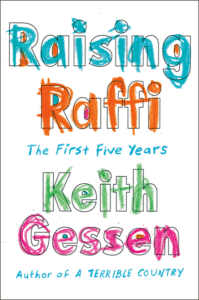
8. Raising Raffi: The First Five Years by Keith Gessen
(Viking)
4 Rave • 10 Positive • 1 Mixed
Read an excerpt from Raising Raffi here
“A wise, mild and enviably lucid book about a chaotic scene … Is it OK to out your kid like this? … Still, this memoir will seem like a better idea if, a few decades from now, Raffi is happy and healthy and can read it aloud to his own kids while chuckling at what a little miscreant he was … Gessen is a wily parser of children’s literature … He is just as good on parenting manuals … Raising Raffi offers glimpses of what it’s like to eke out literary lives at the intersection of the Trump and Biden administrations … Needing money for one’s children, throughout history, has made parents do desperate things — even write revealing parenthood memoirs … Gessen’s short book is absorbing not because it delivers answers … It’s absorbing because Gessen is a calm and observant writer…who raises, and struggles with, the right questions about himself and the world.”
–Dwight Garner (The New York Times)
9. The Crane Wife by CJ Hauser
(Doubleday)
8 Rave • 4 Positive • 2 Mixed • 1 Pan
Watch an interview with CJ Hauser here
“17 brilliant pieces … This tumbling, in and out of love, structures the collection … Calling Hauser ‘honest’ and ‘vulnerable’ feels inadequate. She embraces and even celebrates her flaws, and she revels in being a provocateur … It is an irony that Hauser, a strong, smart, capable woman, relates to the crane wife’s contortions. She felt helpless in her own romantic relationship. I don’t have one female friend who has not felt some version of this, but putting it into words is risky … this collection is not about neat, happy endings. It’s a constant search for self-discovery … Much has been written on the themes Hauser excavates here, yet her perspective is singular, startlingly so. Many narratives still position finding the perfect match as a measure of whether we’ve led successful lives. The Crane Wife dispenses with that. For that reason, Hauser’s worldview feels fresh and even radical.”
–Hope Reese (Oprah Daily)
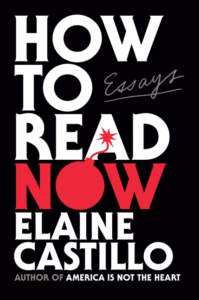
10. How to Read Now by Elaine Castillo
(Viking)
8 Rave • 2 Positive • 1 Mixed
Read an excerpt from How to Read Now here
“Elaine Castillo’s How to Read Now begins with a section called ‘Author’s Note, or a Virgo Clarifies Things.’ The title is a neat encapsulation of the book’s style: rigorous but still chatty, intellectual but not precious or academic about it … How to Read Now proceeds at a breakneck pace. Each of the book’s eight essays burns bright and hot from start to finish … How to Read Now is not for everybody, but if it is for you, it is clarifying and bracing. Castillo offers a full-throated critique of some of the literary world’s most insipid and self-serving ideas … So how should we read now? Castillo offers suggestions but no resolution. She is less interested in capital-A Answers…and more excited by the opportunity to restore a multitude of voices and perspectives to the conversation … A book is nothing without a reader; this one is co-created by its recipients, re-created every time the page is turned anew. How to Read Now offers its audience the opportunity to look past the simplicity we’re all too often spoon-fed into order to restore ourselves to chaos and complexity—a way of seeing and reading that demands so much more of us but offers even more in return.”
–Zan Romanoff (The Los Angeles Times)
*
Our System:
RAVE = 5 points • POSITIVE = 3 points • MIXED = 1 point • PAN = -5 points
We’ve come to the end of another bountiful literary year, and for all of us review rabbits here at Book Marks, that can mean only one thing: basic math, and lots of it.
Yes, using reviews drawn from more than 150 publications, over the next two weeks we’ll be calculating and revealing the most critically-acclaimed books of 2022, in the categories of (deep breath): Fiction; Nonfiction; Memoir and Biography; Sci-Fi, Fantasy, and Horror; Short Story Collections; Essay Collections; Poetry; Mystery and Crime; Graphic Literature; and Literature in Translation.
Today’s installment: Mystery and Crime.
*
1. Paradais by Fernanda Melchor, trans. by Sophie Hughes
(New Directions)
18 Rave • 6 Positive
“Paradais is both more compact and more cogent [than Hurricane Season]. Rhythm and lexis work in tandem to produce a savage lyricism. The translator Sophie Hughes marvellously matches the author in her pursuit of a new cadence … From its first sentence, in fact, Paradais feels rhythmically propelled towards a violent climax. Full stops occur rarely enough to seem meaningful, Melchor using long lines of unbroken narrative to reel in her terrible ending … The author wants to understand the violence, not merely condemn it … The novel’s language, meanwhile, is both high-flown and street-smart, strewn with Veracruzian slang, the odd made-up word and many eye-watering expletives … Pressure builds remorselessly to a dreadful climax. It is an extraordinary feat of control, making Fernanda Melchor’s exceptional novel into a contemporary masterpiece.”
–Miranda France (Times Literary Supplement)
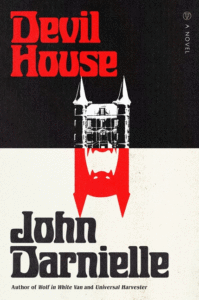
2. Devil House by John Darnielle
(MCD)
14 Rave • 8 Positive • 2 Mixed
Listen to a conversation with John Darnielle here
“… terrific: confident, creepy, a powerful and soulful page-turner. I had no idea where it was going, in the best possible sense … The thing about Darnielle’s writing, in all its forms, is this: If you’re that dorky outcast kid drawing a pentagram on the back page of your three-ring binder in algebra class, not because you want to drink anyone’s blood but because you think it’s cool, he sees you. His novels are in close contact with the alternative cultural universes of fantasy and the occult and science fiction, yet they don’t resemble genre fiction. They’re earthy and fly low to the ground. They are plain-spoken and in no hurry … Devil House…[is]never quite the book you think it is. It’s better.”
–Dwight Garner (The New York Times)
3. Act of Oblivion by Robert Harris
(Harper)
14 Rave • 5 Positive
“Gripping … A belter of a thriller. It will be compulsive reading for those who loved An Officer and a Spy, Harris’s book about the Dreyfus affair. Like that novel, the research is immaculate. A chewy, morally murky slice of history is made into a tale that twists and surprises. The characters are strong and we care about their predicament. The story stretches over continents and years, but the suspense feels as taut as if the three main characters were locked in a room with a gun.”
–Antonia Senior (AirMail)
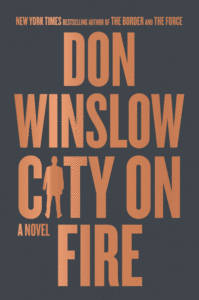
4. City on Fire by Don Winslow
(William Morrow)
14 Rave • 4 Positive
Read an interview with Don Winslow here
“Winslow…brings his sharp interpretive skills to Virgil’s Aeneid, and makes the events at Troy and the founding of Rome into a riveting gangster tale. He makes me wonder why I had never before seen the Trojan War as the obvious fight between rival criminal gangs … In City of Fire, he returns to his New England roots for this new classic he says took him decades to write … Winslow is a master of pacing. Action and erotic sequences fire the adrenaline, while tender scenes feel languid and warm. He shades the relationship between men and women in noir tones. Tough guys don’t always get their way. Noir women are wicked smart, and press their advantages against how men’s low assumptions of women make them weak … Winslow has been lauded for the ways that his previous crime novels confront social issues. He has interrogated the ways that borders work between us, that we’re weak at the border when we build insurmountable walls to shore them up. One that runs under the surface of Winslow’s novel is that it’s not just the faults of individuals that cause these men to fail. But here, rigid definitions of who gets to belong in ‘our thing’ create fatal weaknesses among them. The refusal to think outside their constricted notions of masculinity and honor hobbles them.”
–Lorraine Berry (The Boston Globe)
5. Bad Actors by Mick Herron
(Soho Crime)
9 Rave • 4 Positive
Listen to an excerpt from Bad Actors here
“Herron’s plots are masterpieces of convolution and elegant wrong-footing. Beyond that, his action scenes are fast-paced and thrilling—there are a couple of high-octane doozies in this installment. But the real draw of the series is its dark, dark humor. Much of it is interpersonal, but the most biting of all concerns the state of Britain, a country beset by Brexit, COVID and incompetent, if mercenary, leadership … If there is bad news, it is that you really should have read some of the previous Slough House novels in order to get a handle on this party of rejects, their histories and capabilities. Further, if you are a veteran of the series, you may have become a little weary of Jackson Lamb’s extravagant foulness and his habit of magicking cigarettes and even himself out of nowhere. That said, this is still one of the most enjoyable series I have ever read.”
–Katherine A. Powers (The Star Tribune)
6. The Bullet That Missed by Richard Osman
(Pamela Dorman Books)
9 Rave • 5 Positive • 1 Pan
“Osman concocts a satisfyingly complex whodunit full of neat twists and wrong turns. But unlike most crime novelists, he ensures his book’s strength and momentum stem not from its plot or its thrills but rather its perfectly formed characters. Once again, the quartet of friends makes for delightful company … If there is fault to be found it is a recurring one throughout the series—namely that Osman’s two men have less to do than his two women, and as a result feel like extras around the main double-act. But what a double-act … What could have been twee and uninvolving is in fact heartwarming and enthralling. ‘They carried a kind of magic, the four of them,’ a policeman muses. That magic is still there in abundance.”
–Malcolm Forbes (The Washington Post)
7. Luckenbooth by Jenni Fagan
(Pegasus)
9 Rave • 2 Positive • 1 Mixed • 1 Pan
“. deliciously weird … Fagan once again examines the way people are affected by unhealthy spaces … she writes about placement and displacement with an arresting mix of insight and passion … Fagan tests each floor of No. 10 Luckenbooth as though she’s playing a literary version of Jenga, drawing out one block after another from this unstable structure … a muffled scream—with a feral melody and a thundering bass line. Her prose has never been more cinematic. This story’s inexorable acceleration and its crafty use of suggestion and elision demonstrate the special effects that the best writers can brew up without a single line of Hollywood software—just paper, ink and ghosts.”
–Ron Charles (The Washington Post)
8. The Christie Affair by Nina de Gramont
(St. Martin’s Press)
7 Rave • 2 Positive • 3 Mixed
“An ingenious new psychological suspense novel that concocts an elaborate backstory behind Christie’s disappearance … Here’s the neatest narrative trick of all: As Christie characteristically did, de Gramont hides the solution to the mystery of The Christie Affair in plain sight … The Christie Affair is richly imagined; inventive and, occasionally, poignant; and about as true-to-life as Christie’s own tales of quaint villages with their staggering murder rates. But when fabrications are this marvelous, why demand realism?”
–Maureen Corrigan (The Washington Post)
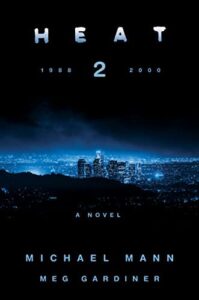
9. Heat 2 by Michael Mann and Meg Gardiner
(William Morrow)
7 Rave • 2 Positive • 2 Mixed
“It’s a pulpy, expansive crime novel that feels of a piece with Mann’s filmography, from its hypercompetent, ambitious characters to the richly detailed underworlds they operate in … At times, Mann and Gardiner use the prequel portion of the book to directly explain the origins of iconic moments from the film, but even those instances tend to feel motivated by the story rather than like cheap ploys to get readers to do the Leo pointing meme … part of the fun of Heat 2 lies in watching its authors pull ideas and tiny details from across Mann’s entire filmography … Heat 2, though, paints complete enough portraits of its characters to allow you to imagine them separately from the stars who played them, making a film adaptation with new actors easier to imagine.”
–Chris Stanton (Vulture)
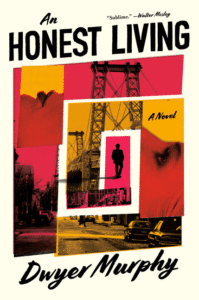
10. An Honest Living by Dwyer Murphy
(Viking)
6 Rave • 3 Positive • 2 Mixed
Listen to an interview with Dwyer Murphy here
“Like the best noir practitioners, Murphy uses the mystery as scaffolding to assemble a world of fallen dreams and doom-bitten characters … Murphy’s hard-boiled rendering of the city is nothing short of exquisite. It’s a landscape of reeking garbage, of salty rain sweeping off the ocean, of Midtown towers that look ‘ghostly like a mountain range,’ … For anyone who wants a portrait of this New York, few recent books have conjured it so vividly. For those who demand a straightforward mystery without any humor, romance and ambience, well, forget it, Jake, it’s literature.”
–Christopher Bollen (The New York Times Book Review)
*
Our System:
RAVE = 5 points • POSITIVE = 3 points • MIXED = 1 point • PAN = -5 points
We’ve come to the end of another bountiful literary year, and for all of us review rabbits here at Book Marks, that can mean only one thing: basic math, and lots of it.
Yes, using reviews drawn from more than 150 publications, over the next two weeks we’ll be calculating and revealing the most critically-acclaimed books of 2022, in the categories of (deep breath): Fiction; Nonfiction; Memoir and Biography; Sci-Fi, Fantasy, and Horror; Short Story Collections; Essay Collections; Poetry; Mystery and Crime; Graphic Literature; and Literature in Translation.
Today’s installment: Short Story Collections.
*
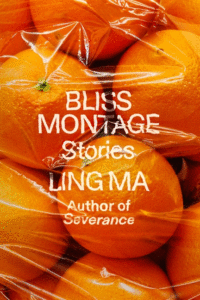
1. Bliss Montage by Ling Ma
(Farrar, Straus and Giroux)
21 Rave • 5 Positive • 2 Mixed
Read an interview with Ling Ma here
“The eight wily tales mark the return of an author whose inventive debut, Severance, urgently announced her as a writer worth watching … an assured follow-up, a striking collection that peddles in the uncanny and the surreal, but it often lacks Severance’s zest. Some stories are confident in their strangeness and ambiguity, a handful feel like promising sketches of sturdier narratives and the rest fall somewhere in between. The connections between them are loose, tethered by similar leads … Wry, peculiar stories like Los Angeles and Yeti Lovemakingconfirm that Ma’s imagination operates on the same chimerical frequency as those of Helen Oyeyemi, Samanta Schweblin, Meng Jin. Each of these stories leans un-self-consciously into the speculative, illuminating Ma’s phantasmagoric interests. They are funny, too … Despite their nagging loose ends, Ma’s stories stay with you — evidence of a gifted writer curious about the limits of theoretical possibility. They twist and turn in unpredictable ways and although the ride wasn’t always smooth, I never regretted getting on.”
–Lovia Gyarkye (The New York Times Book Review)
2. Liberation Day by George Saunders
(Random House)
16 Rave • 6 Positive • 5 Mixed (86)
Read George Saunders on reading chaotically and the power of generous teachers, here
“Acutely relevant … Let’s bask in this new collection of short stories, which is how many of us first discovered him and where he excels like no other … Saunders’ imaginative capacity is on full display … Liberation Day carries echoes of Saunders’ previous work, but the ideas in this collection are more complex and nuanced, perhaps reflecting the new complexities of this brave new world of ours. The title story is only one of a handful of the nine stories in this collection that show us our collective and personal dilemmas, but in reading the problems so expressed—with compassion and humanity—our spirits are raised and perhaps healed. Part of the Saunders elixir is that we feel more empathetic after reading his work.”
–Scott Laughlin (The San Francisco Chronicle)
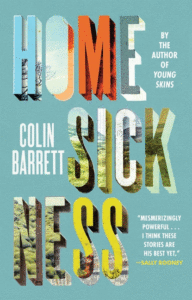
3. Homesickness by Colin Barrett
(Grove Press)
16 Rave • 1 Positive • 1 Mixed
Read an essay by Colin Barrett here
“Its comedy stands in balance to the collection’s more tragic tenor … expands [Barrett’s] range, and though the first took place in the fictional Irish town of Glanbeigh, the books share a fabric shot through with dark humor, pitch-perfect dialogue and a signature freshness that makes life palpable on the page. The language counterpoints the sometimes inarticulate desperation of the working-class characters, and that dissonance lends an emotional complexity to their stories … As a writer, Barrett doesn’t legislate from the top down. His unruly characters surge up with their vitality and their mystery intact. Their stories aren’t shaped by familiar resolutions—no realizations, morals or epiphanies. The absence of a conventional resolution does risk leaving an otherwise charming story like The Silver Coast with the rambling feel of a slice of life. But in the majority of the stories in this book, to reinvent an ending is to reinvent how a story is told, and overall, Homesickness is graced with an original, lingering beauty.”
–Stuart Dybek (The New York Times Book Review)
4. Lesser Known Monsters of the 21st Century by Kim Fu
(Tin House)
13 Rave • 4 Positive
Read a story from Lesser Known Monsters of the 21st Century here
“..the horrors are more intimate, smaller, and less global in scale. This is not a collection filled with fantastic beasts, although a sea monster does make an appearance, but instead illuminates the monstrous nature of humanity … Technology, rather than magic, catalyzes these changes. That is not to say there are not some traces of unexplained fantasy, such as a girl who sprouts wings from her ankles, but mostly, Fu’s monsters manifest from modernity … The success of Kim Fu’s stories is the element of the unexpected. There are surprises lurking in these narratives, whether it is a quick final plot twist or unexpected peculiarity … Although Fu seems more concerned with alienation stemming from individual relationships, there is criticism of conventional consumer capitalism … The characters in Fu’s collection are eccentric and unexpected in their choices, and many of their stories feature unforeseen endings that strike the right tone for the dark era we live in … Fu opens a window looking onto the sad possibilities of our own failures.”
–Ian MacAllen (The Chicago Review of Books)
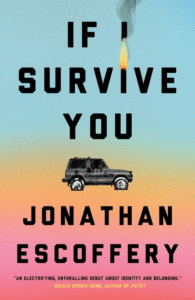
5. If I Survive You by Jonathan Escoffery
(MCD)
12 Rave • 4 Positive
Read an essay by Jonathan Escoffery here
“Ravishing … The book, about an immigrant family struggling to make ends meet, delights in mocking the trope of an immigrant family struggling to make ends meet … There’s peacocking humor, capers, and passages of shuddering eroticism. The book feels thrillingly free … Escoffery’s protagonists, though resourceful, can’t accomplish the impossible; nor do they sacrifice themselves for the reader’s sentimental education … The prose comes alive … These characters are strange amalgams of limited agency and boundless originality. Their survival, perhaps, comes down to their style … Escoffery deftly renders the disorienting effects of race as they fall, veil-like and hostile, over a world of children … Throughout, the refrain runs like an incantation: What are you? Escoffery, hosing his characters in a stream of fines, bills, and pay stubs, studies the bleak math of self-determination.”
–Katy Waldman (The New Yorker)
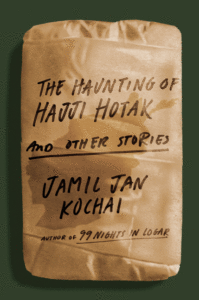
6. The Haunting of Hajji Hotak and Other Stories by Jamil Jan Kochai
(Viking)
12 Rave • 1 Positive • 1 Mixed
Read Jamil Jan Kochai’s essay, “How Final Fantasy VII Taught Me to Write,” here
“Kochai, an Afghan-American writer, shapes and reshapes his material through a variety of formal techniques, including a fantasy of salvation through video gaming, a darkly surrealist fable of loss, a life story told through a mock résumé, and the story of a man’s transformation into a monkey who becomes a rebel leader…Like Asturias, Kochai is a master conjurer…The collection’s cohesion lies in its thematic exploration of the complexities of contemporary Afghan experience (both in Afghanistan and the United States), and in the recurring family narrative at its core: many of the stories deal with an Afghan family settled in California…Kochai is a thrillingly gifted writer, and this collection is a pleasure to read, filled with stories at once funny and profoundly serious, formally daring, and complex in their apprehension of the contradictory yet overlapping worlds of their characters.”
–Claire Messud (Harper’s)
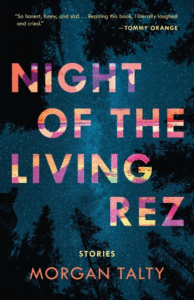
7. Night of the Living Rez by Morgan Talty
(Tin House Book)
12 Rave • 1 Positive • 1 Mixed
Listen to an interview with Morgan Talty here
“Talty depicts the relationship between David and Paige perfectly—the siblings clearly care for each other; it’s evident beneath the bickering and the long periods when they don’t see each other … The story ends with both mother and son experiencing terrifying medical emergencies; it’s almost excruciating to read, but it’s undeniably powerful, and, in its own way, beautiful … Talty’s prose is flawless throughout; he writes with a straightforward leanness that will likely appeal to admirers of Thom Jones or Denis Johnson. But his style is all his own, as is his immense sense of compassion. Night of the Living Rez is a stunning look at a family navigating their lives through crisis—it’s a shockingly strong debut, sure, but it’s also a masterwork by a major talent.”
–Michael Schaub (The Star Tribune)

8. How High We Go in the Dark by Sequoia Nagamatsu
(William Morrow)
10 Rave • 6 Positive • 1 Mixed • 1 Pan
Read an excerpt from How High We Go in the Dark here
“If you’re a short-story lover—as I am—you’ll be impressed with Nagamatsu’s meticulous craft. If you crave sustained character and plot arcs, well, you’ll have to settle for admiring the well-honed prose, poignant meditations and unique concepts. Hardly small pleasures … The reader might best approach the book like a melancholy Black Mirror season … This is a lovely though bleak book. Humanity has long turned to humor in our darkest moments, but levity feels absent even in a chapter narrated by a stand-up comedian. That said, the somber tone unifies the disparate characters and story lines … a welcome addition to a growing trend of what we might call the ‘speculative epic’: genre-bending novels that use a wide aperture to tackle large issues like climate change while jumping between characters, timelines and even narrative modes … Nagamatsu squarely hits both the ‘literary’ and ‘science fiction’ targets, offering psychological insights in lyrical prose while seriously exploring speculative conceits … a book of sorrow for the destruction we’re bringing on ourselves. Yet the novel reminds us there’s still hope in human connections, despite our sadness.”
–Lincoln Michel (The New York Times Book Review)
9. Life Without Children by Roddy Doyle
(Viking)
9 Rave • 5 Positive • 1 Mixed
“… a quietly devastating collection of short stories that brilliantly portrays the pervasive sense of hopelessness that immobilised us during the dog days of Covid … Lest he be accused of focusing too much on men and their sense of victimhood, the countervailing magnificence of his women is worth noting. Part of Doyle’s genius resides in a kind of bathetic amusement at the follies of his male characters and always it’s the stoical good sense of women that saves the day … Another of his great strengths is the ability to drop in those little epiphanies that resolve the tension and conflict of a story in a single significant moment … Doyle breaks our free fall into despair by emphasizing the redemptive power of humor, love and the kindness of strangers.”
–Bert Wright (The Sunday Times)

10. Stories From the Tenants Downstairs by Sidik Fofana
(Scribner)
12 Rave
Read an interview with Sidik Fofana here
“… outstanding … The brilliance of this debut, however, is that Fofana doesn’t let anyone go unseen … masterfully paints a portrait of the people most impacted by gentrification … Fofana brings his characters to life through their idiosyncratic speech patterns. Auxiliary verbs are dropped, words are misspelled, prepositions are jostled, all to create a sense of vernacular authenticity…Grammar is an instrument that Fofana plays by ear, to much success.”
–Joseph Cassara (The New York Times Book Review)
*
Our System:
RAVE = 5 points • POSITIVE = 3 points • MIXED = 1 point • PAN = -5 points
We’ve come to the end of another bountiful literary year, and for all of us review rabbits here at Book Marks, that can mean only one thing: basic math, and lots of it.
Yes, using reviews drawn from more than 150 publications, over the next two weeks we’ll be calculating and revealing the most critically-acclaimed books of 2022, in the categories of (deep breath): Fiction; Nonfiction; Memoir and Biography; Sci-Fi, Fantasy, and Horror; Short Story Collections; Essay Collections; Poetry; Mystery and Crime; Graphic Literature; and Literature in Translation.
Today’s installment: Sci-Fi, Fantasy, and Horror.
*
1. Sea of Tranquility by Emily St. John Mandel
(Knopf)
28 Rave • 9 Positive • 3 Mixed • 1 Pan
Read an interview with Emily St. John Mandel here
“In Sea of Tranquility, Mandel offers one of her finest novels and one of her most satisfying forays into the arena of speculative fiction yet, but it is her ability to convincingly inhabit the ordinary, and her ability to project a sustaining acknowledgment of beauty, that sets the novel apart. As in Ishiguro, this is not born of some cheap, made-for-television, faux-emotional gimmick or mechanism, but of empathy and hard-won understanding, beautifully built into language … It is that aspect of Sea of Tranquility, Mandel’s finely rendered, characteristically understated descriptions of the old-growth forests her characters walk through, the domed moon colonies some of them call home, the robot-tended fields they gaze over or the whooshing airship liftoff sound they hear even in their dreams, that will, for this reader at least, linger longest.”
–Laird Hunt (The New York Times Book Review)
2. Our Missing Hearts by Celeste Ng
(Penguin)
21 Rave • 5 Positive • 4 Mixed
“Stunning … One of Ng’s most poignant tricks in this novel is to bury its central tragedy…in the middle of the action. This raises the narrative from the specific story of a confused boy and his defeated father to a reflection on the universal bond between parents and children … Our Missing Hearts will land differently for individual readers. One element we shouldn’t miss is Ng’s bold reversal of the biblical story of the Tower of Babel. It is the drive for conformity, the suppression of our glorious cacophony, that will doom us. And it is the expression of individual souls that will save us.”
–Bethanne Patrick (The Lost Angeles Times)
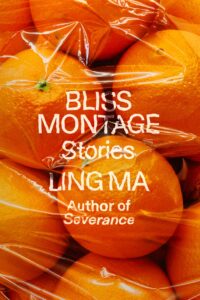
3. Bliss Montage by Ling Ma
(Farrar, Straus and Giroux)
21 Rave • 5 Positive • 2 Mixed
“The strangeness of living in a body is exposed, the absurdity of carrying race and gender on one’s face, all against the backdrop of an America in ruin … Ma’s meticulously-crafted mood and characterization … Ma’s gift for endings is evident … Ma masterfully captures her characters’ double consciousness, always seeing themselves through the white gaze, in stunning and bold new ways … Even the weaker stories in the book…are redeemed by Ma’s restrained prose style, dry humor, and clever gut-punch endings. But all this technical prowess doesn’t mean the collection lacks a heart. First- and second-generation Americans who might have been invisible for most of their lives are seen and held lovingly in Ma’s fiction.”
–Bruna Dantas Lobato (Astra)
4. Moon Witch, Spider King by Marlon James
(Riverhead)
15 Rave • 7 Positive • 1 Mixed • 1 Pan
“Marlon James’s Moon Witch, Spider King, the second book in his Dark Star trilogy, is both a continuation of the narrative that began with Black Leopard, Red Wolf in 2019 and an outstanding retelling of that story that expands on what the first book started. While shifting points of view, James…enriches the existing story, and the result is a book that simultaneously celebrates African mythology while creating its own … an impressive amalgamation of folklore, magic, and mythology that weaves together several narratives, but the element that makes it memorable is James’s prose. As lush as the forests he describes, the prose in this novel is simple, rhythmic, and strangely elegant. This is writing with a kind of cadence that turns every line into a poem, every story a tale told around a fire, every event an occurrence deserving of attention … Retelling the same story from a different perspective is not a gimmick here; it is a successful literary device that leads to a gripping narrative … This is a novel about the power of grief where anger is a driving force, and in that, despite all its fantastical elements, it is a deeply human story.”
–Gabino Iglesias (The Boston Globe)
=5. Lesser Known Monsters of the 21st Century by Kim Fu
(Tin House)
13 Rave • 4 Positive
Read a story from Lesser Known Monsters of the 21st Century here
“..the horrors are more intimate, smaller, and less global in scale. This is not a collection filled with fantastic beasts, although a sea monster does make an appearance, but instead illuminates the monstrous nature of humanity … Technology, rather than magic, catalyzes these changes. That is not to say there are not some traces of unexplained fantasy, such as a girl who sprouts wings from her ankles, but mostly, Fu’s monsters manifest from modernity … The success of Kim Fu’s stories is the element of the unexpected. There are surprises lurking in these narratives, whether it is a quick final plot twist or unexpected peculiarity … Although Fu seems more concerned with alienation stemming from individual relationships, there is criticism of conventional consumer capitalism … The characters in Fu’s collection are eccentric and unexpected in their choices, and many of their stories feature unforeseen endings that strike the right tone for the dark era we live in … Fu opens a window looking onto the sad possibilities of our own failures.”
–Ian MacAllen (The Chicago Review of Books)
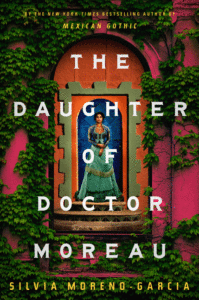
=5. The Daughter of Doctor Moreau by Silvia Moreno-Garcia
(Del Rey)
13 Rave • 4 Positive
Read an essay by Silvia Moreno-Garcia here
“The imagination of Silvia Moreno-Garcia is a thing of wonder, restless and romantic, fearless in the face of genre, embracing the polarities of storytelling—the sleek and the bizarre, wild passions and deep hatreds—with cool equanimity … the novel immerses readers in the rich world of 19th-century Mexico, exploring colonialism and resistance in a compulsively readable story of a woman’s coming-of-age … The visceral horror of what Carlota has endured, combined with Moreno-Garcia’s pacing and drama, makes for a mesmerizing horror novel.”
–Danielle Trussoni (The New York Times)
7. Our Wives Under the Sea by Julia Armfield
(Flatiron)
12 Rave • 4 Positive • 1 Mixed
Read an essay by Julia Armfield here
“I have not stopped dreaming of Our Wives Under the Seasince I finished it … Julie Armfield’s debut novel is sharp, atmospheric, dryly funny, sad, distinctive. If it doesn’t appear on numerous prize lists, I’ll eat my hat … There are ecological undertones – one thinks of rising tides, though the climate crisis is not explicitly mentioned … Indeed, though the writing is relentlessly exacting, Our Wives Under the Sea tends towards the unknowable, which might also be synonymous with death or the uncanny. There is an almost spiritual endlessness to its quest. Like all good novels, it goes deep and then deeper again.”
–Niamh Donnelly (The Irish Times)
8. How High We Go in the Dark by Sequoia Nagamatsu
(William Morrow)
10 Rave • 6 Positive • 1 Mixed • 1 Pan
Read an interview with Sequoia Nagamatsu here
“The reader might best approach the book like a melancholy Black Mirror season … This is a lovely though bleak book. Humanity has long turned to humor in our darkest moments, but levity feels absent even in a chapter narrated by a stand-up comedian. That said, the somber tone unifies the disparate characters and story lines … a welcome addition to a growing trend of what we might call the ‘speculative epic’: genre-bending novels that use a wide aperture to tackle large issues like climate change while jumping between characters, timelines and even narrative modes … Nagamatsu squarely hits both the ‘literary’ and ‘science fiction’ targets, offering psychological insights in lyrical prose while seriously exploring speculative conceits … a book of sorrow for the destruction we’re bringing on ourselves. Yet the novel reminds us there’s still hope in human connections, despite our sadness.”
–Lincoln Michel (The New York Times Book Review)
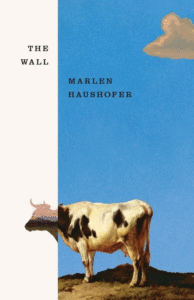
9. The Wall by Marlen Haushofer
(New Directions)
10 Rave • 1 Positive
“The return to the now solidly established horror, in realism’s steady pacing, is always more visceral than the initial encounter … a dystopian novel that gradually becomes a utopian one, as our narrator makes a new community. Haushofer’s inhabiting of animality is remarkably tender and selfless … Haushofer is a rather terrifying writer, brutal both in her unillusioned clarity and in the calm with which she tracks the consequences of her fictional premises … one of those books which effortlessly wring meaning upon meaning from their opening narrative conceit … pulses with a meaningful politics that is always in danger of being unravelled by the novel’s own movement toward a resigned, fatalistic, strictly apolitical naturism.”
–James Wood (The New Yorker)
10. A Tiny Upward Shove by Melissa Chadburn
(Farrar, Staus and Giroux)
9 Rave • 3 Positive
Listen to an interview with Melissa Chadburn here
“It is a wild and ambitious conceit, but it succeeds because of the exuberance of the aswang’s voice and the richness of the details … the women are vivid: their hair and jewelry and clothes, their preoccupations and mannerisms … The horrors Alex in particular endures are lurid and hard to read. But the book is rescued by a joy evident in the writing, something ablaze at its core. It burns.”
–Erin Somers (The New York Times Book Review)
*
Our System:
RAVE = 5 points • POSITIVE = 3 points • MIXED = 1 point • PAN = -5 points
We’ve come to the end of another bountiful literary year, and for all of us review rabbits here at Book Marks, that can mean only one thing: basic math, and lots of it.
Yes, using reviews drawn from more than 150 publications, over the next two weeks we’ll be calculating and revealing the most critically-acclaimed books of 2022, in the categories of (deep breath): Fiction; Nonfiction; Memoir and Biography; Sci-Fi, Fantasy, and Horror; Short Story Collections; Essay Collections; Poetry; Mystery and Crime; Graphic Literature; and Literature in Translation.
Today’s installment: Memoir and Biography.
*
1. We Don’t Know Ourselves by Fintan O’Toole
(Liveright)
17 Rave • 4 Positive • 1 Mixed • 1 Pan
“One of the many triumphs of Fintan O’Toole’s We Don’t Know Ourselves is that he manages to find a form that accommodates the spectacular changes that have occurred in Ireland over the past six decades, which happens to be his life span … it is not a memoir, nor is it an absolute history, nor is it entirely a personal reflection or a crepuscular credo. It is, in fact, all of these things helixed together: his life, his country, his thoughts, his misgivings, his anger, his pride, his doubt, all of them belonging, eventually, to us … O’Toole, an agile cultural commentator, considers himself to be a representative of the blank slate on which the experiment of change was undertaken, but it’s a tribute to him that he maintains his humility, his sharpness and his enlightened distrust … O’Toole writes brilliantly and compellingly of the dark times, but he is graceful enough to know that there is humor and light in the cracks. There is a touch of Eduardo Galeano in the way he can settle on a telling phrase … But the real accomplishment of this book is that it achieves a conscious form of history-telling, a personal hybrid that feels distinctly honest and humble at the same time. O’Toole has not invented the form, but he comes close to perfecting it. He embraces the contradictions and the confusion. In the process, he weaves the flag rather than waving it.”
–Colum McCann (The New York Times Book Review)
2. Thin Places: A Natural History of Healing and Home by Kerri Ní Dochartaigh
(Milkweed)
12 Rave • 7 Positive • 2 Mixed
“Assured and affecting … A powerful and bracing memoir … This is a book that will make you see the world differently: it asks you to reconsider the animals and insects we often view as pests – the rat, for example, and the moth. It asks you to look at the sea and the sky and the trees anew; to wonder, when you are somewhere beautiful, whether you might be in a thin place, and what your responsibilities are to your location.It asks you to show compassion for people you think are difficult, to cultivate empathy, to try to understand the trauma that made them the way they are.”
–Lynn Enright (The Irish Times)
3. Ducks: Two Years in the Oil Sands by Kate Beaton
(Drawn & Quarterly)
14 Rave • 4 Positive
“It could hardly be more different in tone from [Beaton’s] popular larky strip Hark! A Vagrant … Yes, it’s funny at moments; Beaton’s low-key wryness is present and correct, and her drawings of people are as charming and as expressive as ever. But its mood overall is deeply melancholic. Her story, which runs to more than 400 pages, encompasses not only such thorny matters as social class and environmental destruction; it may be the best book I have ever read about sexual harassment … There are some gorgeous drawings in Ducks of the snow and the starry sky at night. But the human terrain, in her hands, is never only black and white … And it’s this that gives her story not only its richness and depth, but also its astonishing grace. Life is complex, she tell us, quietly, and we are all in it together; each one of us is only trying to survive. What a difficult, gorgeous and abidingly humane book. It really does deserve to win all the prizes.”
–Rachel Cooke (The Guardian)
4. Stay True by Hua Hsu
(Doubleday)
14 Rave • 3 Positive
“… quietly wrenching … To say that this book is about grief or coming-of-age doesn’t quite do it justice; nor is it mainly about being Asian American, even though there are glimmers of that too. Hsu captures the past by conveying both its mood and specificity … This is a memoir that gathers power through accretion—all those moments and gestures that constitute experience, the bits and pieces that coalesce into a life … Hsu is a subtle writer, not a showy one; the joy of Stay True sneaks up on you, and the wry jokes are threaded seamlessly throughout.”
–Jennifer Szalai (The New York Times)
5. Manifesto: On Never Giving Up by Bernardine Evaristo
(Grove)
13 Rave • 4 Positive
“Part coming-of-age story and part how-to manual, the book is, above all, one of the most down-to-earth and least self-aggrandizing works of self-reflection you could hope to read. Evaristo’s guilelessness is refreshing, even unsettling … With ribald humour and admirable candour, Evaristo takes us on a tour of her sexual history … Characterized by the resilience of its author, it is replete with stories about the communities and connections Evaristo has cultivated over forty years … Invigoratingly disruptive as an artist, Evaristo is a bridge-builder as a human being.”
–Emily Bernard (The Times Literary Supplement)
*
1. Super-Infinite: The Transformations of John Donne by Katherine Rundell
(Farrar, Straus and Giroux)
14 Rave • 4 Positive • 1 Mixed
“Rundell is right that Donne…must never be forgotten, and she is the ideal person to evangelise him for our age. She shares his linguistic dexterity, his pleasure in what TS Eliot called ‘felt thought’, his ability to bestow physicality on the abstract … It’s a biography filled with gaps and Rundell brings a zest for imaginative speculation to these. We know so little about Donne’s wife, but Rundell brings her alive as never before … Rundell confronts the difficult issue of Donne’s misogyny head-on … This is a determinedly deft book, and I would have liked it to billow a little more, making room for more extensive readings of the poems and larger arguments about the Renaissance. But if there is an overarching argument, then it’s about Donne as an ‘infinity merchant’ … To read Donne is to grapple with a vision of the eternal that is startlingly reinvented in the here and now, and Rundell captures this vision alive in all its power, eloquence and strangeness”
–Laura Feigel (The Guardian)
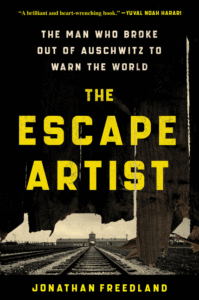
2. The Escape Artist: The Man Who Broke Out of Auschwitz to Warn the World by Jonathan Freedland
(Harper)
12 Rave • 3 Positive
“Compelling … We know about Auschwitz. We know what happened there. But Freedland, with his strong, clear prose and vivid details, makes us feel it, and the first half of this book is not an easy read. The chillingly efficient mass murder of thousands of people is harrowing enough, but Freedland tells us stories of individual evils as well that are almost harder to take … His matter-of-fact tone makes it bearable for us to continue to read … The Escape Artist is riveting history, eloquently written and scrupulously researched. Rosenberg’s brilliance, courage and fortitude are nothing short of amazing.”
–Laurie Hertzel (The Star Tribune)
3. I Used to Live Here Once: The Haunted Life of Jean Rhys by Miranda Seymour
(W. W. Norton & Company)
11 Rave • 4 Positive • 1 Pan
“…illuminating and meticulously researched … paints a deft portrait of a flawed, complex, yet endlessly fascinating woman who, though repeatedly bowed, refused to be broken … Following dismal reviews of her fourth novel, Rhys drifted into obscurity. Ms. Seymour’s book could have lost momentum here. Instead, it compellingly charts turbulent, drink-fueled years of wild moods and reckless acts before building to a cathartic climax with Rhys’s rescue, renewed lease on life and late-career triumph … is at its most powerful when Ms. Seymour, clear-eyed but also with empathy, elaborates on Rhys’s woes … Ms. Seymour is less convincing with her bold claim that Rhys was ‘perhaps the finest English woman novelist of the twentieth century.’ However, she does expertly demonstrate that Rhys led a challenging yet remarkable life and that her slim but substantial novels about beleaguered women were ahead of their time … This insightful biography brilliantly shows how her many battles were lost and won.”
–Malcolm Forbes (The Wall Street Journal)
4. The Facemaker: A Visionary Surgeon’s Battle to Mend the Disfigured Soldiers of World War I by Lindsey Fitzharris
(Farrar, Straus and Giroux)
9 Rave • 5 Positive • 1 Mixed
“Grisly yet inspiring … Fitzharris depicts her hero as irrepressibly dedicated and unfailingly likable. The suspense of her narrative comes not from any interpersonal drama but from the formidable challenges posed by the physical world … The Facemaker is mostly a story of medical progress and extraordinary achievement, but as Gillies himself well knew—grappling daily with the unbearable suffering that people willingly inflicted on one another—failure was never far behind.”
–Jennifer Szalai (The New York Times)
5. Buster Keaton: A Filmmaker’s Life by James Curtis
(Knopf)
8 Rave • 6 Positive • 1 Mixed
“Keaton fans have often complained that nearly all biographies of him suffer from a questionable slant or a cursory treatment of key events. With Buster Keaton: A Filmmaker’s Life—at more than 800 pages dense with research and facts—Mr. Curtis rectifies that situation, and how. He digs deep into Keaton’s process and shows how something like the brilliant two-reeler Cops went from a storyline conceived from necessity—construction on the movie lot encouraged shooting outdoors—to a masterpiece … This will doubtless be the primary reference on Keaton’s life for a long time to come … the worse Keaton’s life gets, the more engrossing Mr. Curtis’s book becomes.”
–Farran Smith Nehme (The Wall Street Journal)
*
Our System:
RAVE = 5 points • POSITIVE = 3 points • MIXED = 1 point • PAN = -5 points
We’ve come to the end of another bountiful literary year, and for all of us review rabbits here at Book Marks, that can mean only one thing: basic math, and lots of it.
Yes, using reviews drawn from more than 150 publications, over the next two weeks we’ll be calculating and revealing the most critically-acclaimed books of 2022, in the categories of (deep breath): Fiction; Nonfiction; Memoir and Biography; Sci-Fi, Fantasy, and Horror; Short Story Collections; Essay Collections; Poetry; Mystery and Crime; Graphic Literature; and Literature in Translation.
Today’s installment: Literature in Translation.
*
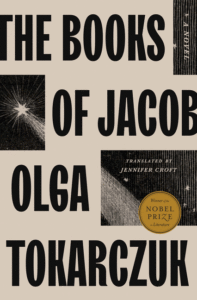
1. The Books of Jacob by Olga Tokarczuk, trans. by Jennifer Croft
(Riverhead)
26 Rave • 9 Positive • 4 Mixed • 1 Pan
“The Books of Jacob is finally available here in a wondrous English translation by Jennifer Croft, and it’s just as awe-inspiring as the Nobel judges claimed when they praised Tokarczuk for showing ‘the supreme capacity of the novel to represent a case almost beyond human understanding.’ In terms of its scope and ambition, The Books of Jacob is beyond anything else I’ve ever read. Even its voluminous subtitle is a witty expression of Tokarczuk’s irrepressible, omnivorous reach … The challenges here — for author and reader — are considerable. After all, Tokarczuk isn’t revising our understanding of Mozart or presenting a fresh take on Catherine the Great. She’s excavating a shadowy figure who’s almost entirely unknown today … As daunting as it sounds, The Books of Jacob is miraculously entertaining and consistently fascinating. Despite his best efforts, Frank never mastered alchemy, but Tokarczuk certainly has. Her light irony, delightfully conveyed by Croft’s translation, infuses many of the sections … The quality that makes The Books of Jacobso striking is its remarkable form. Tokarczuk has constructed her narrative as a collage of legends, letters, diary entries, rumors, hagiographies, political attacks and historical records … This is a story that grows simultaneously more detailed and more mysterious … Haunting and irresistible.”
–Ron Charles (The Washington Post)
2. Paradais by Fernanda Melchor, trans. by Sophie Hughes
(New Directions)
18 Rave • 6 Positive
“Paradais is both more compact and more cogent [than Hurricane Season]. Rhythm and lexis work in tandem to produce a savage lyricism. The translator Sophie Hughes marvellously matches the author in her pursuit of a new cadence … From its first sentence, in fact, Paradais feels rhythmically propelled towards a violent climax. Full stops occur rarely enough to seem meaningful, Melchor using long lines of unbroken narrative to reel in her terrible ending … The author wants to understand the violence, not merely condemn it … The novel’s language, meanwhile, is both high-flown and street-smart, strewn with Veracruzian slang, the odd made-up word and many eye-watering expletives … Pressure builds remorselessly to a dreadful climax. It is an extraordinary feat of control, making Fernanda Melchor’s exceptional novel into a contemporary masterpiece.”
–Miranda France (Times Literary Supplement)
3. In the Margins: On the Pleasures of Reading and Writing by Elena Ferrante, trans. by Ann Goldstein
(Europa)
12 Rave • 12 Positive • 4 Mixed
“The lucid, well-formed essays that make up In the Margins are written in an equally captivating voice … Although a slim collection, there is more than enough meat here to nourish both the common reader and the Ferrante aficionado … Every essay here is a blend of deep thought, rigorous analysis and graceful prose. We occasionally get the odd glimpse of the author…but mainly the focus is on the nuts and bolts of writing and Ferrante’s practice of her craft. The essays are at their most rewarding when Ferrante discusses the origins of her books, in particular the celebrated Neapolitan Novels, and the multifaceted heroines that power them … These essays might not bring us any closer to finding out who Ferrante really is. Instead, though, they provide valuable insight into how she developed as a writer and how she works her magic.”
–Malcolm Forbes (The Star Tribune)
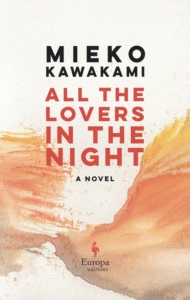
4. All the Lovers in the Night by Mieko Kawakami, trans. by Sam Bett and David Boyd
(Europa)
12 Rave • 4 Positive
“[All the Lovers in the Night] hinges on this double bind created by the feminine ideal: the gloom spawned by a woman’s inevitable failure to measure up to impossible standards of beauty and likability, coupled with a lack of any other available framework through which she can view herself or her peers … There is a cleverness with which All the Lovers in the Night addresses these changes, romantic and professional, in its protagonist’s life. By including alcoholism among them, Kawakami circumvents the shtick of stale ‘glow-up’ narratives, and preserves Fuyuko as a cipher … What makes Kawakami’s novel so brilliant is an understanding of why women might willingly adhere to regressive modes of performative femininity, even while they criticize it. The desire to be loved is no small thing … Kawakami’s novel is uncompromisingly candid in its appraisal of the harm women inflict on one another, while never losing sight of the overarching structures that lead them to do so in the first place. Compact and supple, it’s a strikingly intelligent feat.”
–Jo Hamya (The New York Times Book Review)
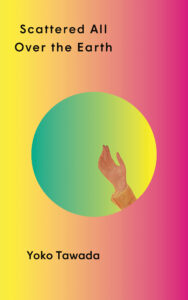
5. Scattered All Over the Earth by Yoko Tawada, trans. by Margaret Mitsutani
(New Directions)
9 Rave • 6 Positive • 1 Mixed
“… mordantly funny … More than simply international, her writing is translingual; she leaves the borders between languages open and allows them to cross-pollinate. To translate her into English is to excavate linguistic strata: Panska reads like a Japonic parody of Nordic syntax translated into a West Germanic language … Each character in Tawada’s ‘band of zigzag travelers’ is given chapters to narrate in the first person. These limited perspectives give rise to a comedy of intercultural misunderstandings that both move the plot forward and provide targets for Tawada’s sharp satire … Judging by the recent migrant crises that informed Tawada’s novel, it is a long-overdue lesson. By the time we are reading the trilogy’s final volume, the climate-fiction scenario Tawada drapes in the trappings of picaresque comedy will no longer seem speculative.”
–Ryan Ruby (The New York Times Book Review)
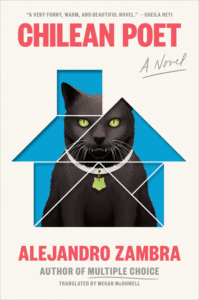
6. Chilean Poet by Alejandro Zambra, trans. by Megan McDowell
(Viking)
8 Rave • 9 Positive • 3 Mixed • 2 Pan
“There is a gentle joke in the title of Alejandro Zambra’s Chilean Poet that leads readers to expect some kind of highbrow Künstlerroman while actually delivering a novel of domesticity filled with prosaic records of daily life. This is partly because, as Mr. Zambra teases, Chile has so many damn poets that the calling has lost its mystique and become a national industry. But the greater meaning has to do with the difficult poetic potentiality for inspiration and transcendence, which this splendid book finds in family relationships as much as in artistic creation … moves deftly among different points of view, arriving at Vicente’s maturation—inevitably, he too becomes a moody wannabe poet. His complicated reunion with Gonzalo is one of the best endings to a novel that I have read in years, a scene of beautiful emotional improvisation.”
–Sam Sacks (The Wall Street Journal)
7. Aftermath: Life in the Fallout of the Third Reich, 1945-1955 by Harald Jähner, tr. by Shaun Whiteside
(Knopf)
7 Rave • 8 Positive • 1 Mixed
Read an excerpt from Aftermath here
.. a scholarly masterpiece which is also a good read … The material is as grim as can be imagined, and Jähner pulls no punches. But he doesn’t allow his story to degenerate into a catalogue of horrors. Instead, we are offered anecdotes and incidents, each memorable, many illustrated by newly discovered photographs, which build into a history which reads like a prelude to Waiting for Godot, that great work of 1949. In vignette after vignette, people remain people, however apocalyptic the events they have just participated in or witnessed or had visited upon them.”
–James Hawes (The Spectator)

8. The Wall by Marlen Haushofer, trans. by Shaun Whiteside
(New Directions)
11 Rave • 1 Positive
“The return to the now solidly established horror, in realism’s steady pacing, is always more visceral than the initial encounter … a dystopian novel that gradually becomes a utopian one, as our narrator makes a new community. Haushofer’s inhabiting of animality is remarkably tender and selfless … Haushofer is a rather terrifying writer, brutal both in her unillusioned clarity and in the calm with which she tracks the consequences of her fictional premises … one of those books which effortlessly wring meaning upon meaning from their opening narrative conceit … pulses with a meaningful politics that is always in danger of being unravelled by the novel’s own movement toward a resigned, fatalistic, strictly apolitical naturism.”
–James Wood (The New Yorker)
9. Portrait of an Unknown Lady by María Gainza, trans. by Thomas Bunstead
(Catapult)
6 Rave • 8 Positive • 3 Mixed
“Portrait of an Unknown Lady, translated by Thomas Bunstead, is a seemingly more conventional novel about a high society con artist in 1960s Argentina. But like Optic Nerve, it’s a layered narrative told through impressionistic vignettes by a narrator who is attracted to the sadness and strangeness of others … Gainza’s novel becomes a puzzle as we question the most improbable biographical details. How much has been fabricated by the narrator? Does authenticity really matter? And exactly whose life story is she really interested in: artist, forger or authenticator? … Gainza weaves a fascinating, often confounding story about beauty, obsession and authenticity … Like Bolaño, she writes stories within stories, each with its own melancholy mood and unsolvable mystery … a novel with many beautiful, confounding moments. Maria Gainza is sharp, modern and playful, a writer who multiplies the possibilities for fiction.”
–Johanna Thomas-Corr (The Guardian)
10. Bitter Orange Tree by Jokha Alharthi, trans. by Marilyn Booth
(Catapult)
7 Rave • 6 Positive • 3 Mixed
Listen to an excerpt from Bitter Orange Tree here
“Beautifully translated by Marilyn Booth in the poignant, lyrical style of the original Arabic, Bitter Orange Tree is a deeply emotional, largely autobiographical novel permeated with regret, even guilt … lays bare the realities of rural life in Oman’s highly traditional society … Alharthi is highly attuned to the hardships of old age and is particularly adept at describing the stifling traditions of the Omani patriarchy … Beyond the inherent interest of its context, Bitter Orange Tree will also strike a chord with those who have either voluntarily or involuntarily left their homeland and are torn between the longing for a new life and a yearning for the security of the old ways.”
–Diana Darke (Times Literary Supplement)
*
Our System:
RAVE = 5 points • POSITIVE = 3 points • MIXED = 1 point • PAN = -5 points

